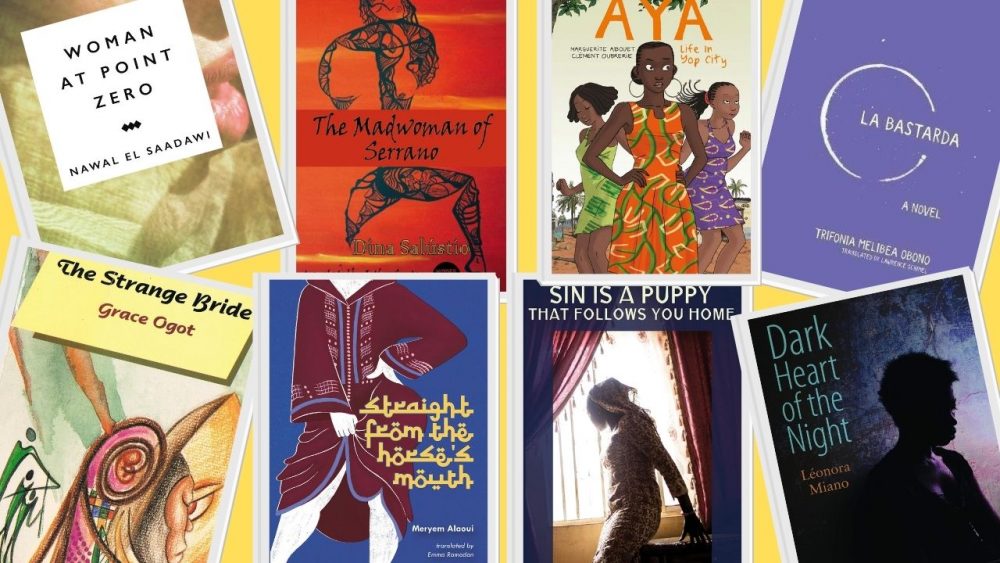Science fiction is both an exciting and a vitally important genre of fiction — across literature, film, and video games — for countless reasons. The best sci-fi books offer writers and readers the opportunity to flex their imaginations, to ask colossal questions about philosophy and existentialism. This is what the best sci-fi books provide us.
Sci-fi is also perhaps the most diverse genre, both in terms of possibilities and inclusion, with writers and readers of every race, gender, and sexual orientation. For that reason, this list of the best sci-fi books ever showcases the range and breadth of science fiction, featuring writers from all over the world, from different cultural backgrounds.
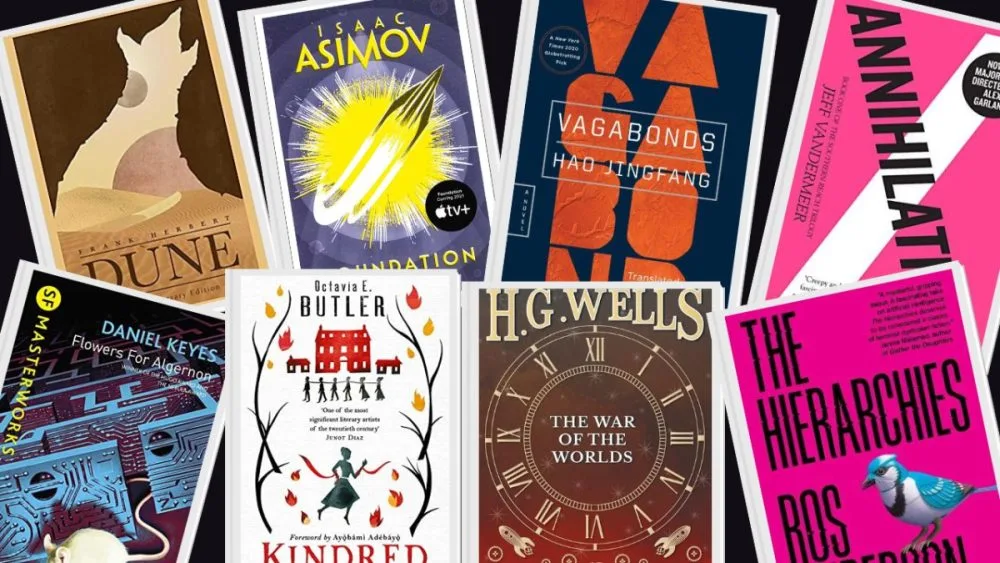
Diversity is important, as is showcasing the legacy and history of the science fiction genre, from its earliest iterations to where we are right now. This is also a growing list that will be periodically expanded as we read more and more of the best sci-fi books, both classic and contemporary. So head back here frequently to see what new gems have been published or re-discovered.
With that said, the best sci-fi books featured here have been divided into two categories: classic sci-fi books and contemporary science fiction novels.
Best Classic Sci-Fi Books
For the purposes of this list, “classic sci-fi books” refers to anything published before the start of the 21st century. This means we’re covering everyone from Mary Shelley to Dan Simmons.
The “contemporary sci-fi books” section is reserved for the ever-growing library of modern sci-fi books that this century will continue to gift us with. So, if you’re looking to expand your own library of the best sci-fi books that everyone should read, from both the 19th and 20th centuries, these are the ones to check out.
Journey to the Center of the Earth by Jules Verne
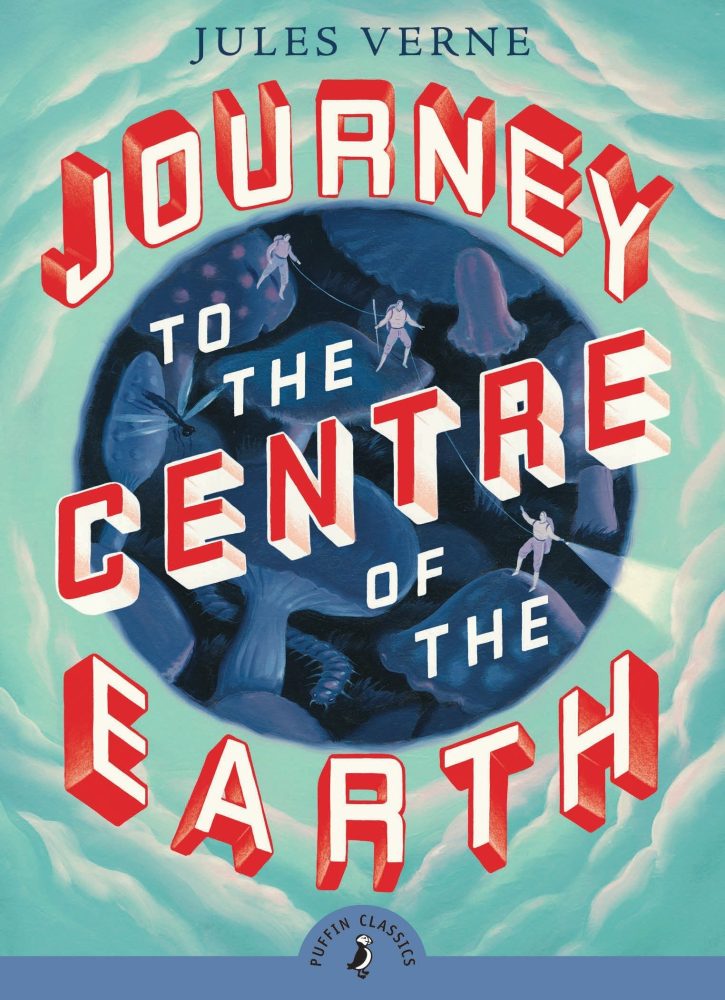
Alongside British sci-fi author H.G. Wells (below), French author Jules Verne is considered one of the godfathers of science fiction literature. His stories have inspired countless readers and writers, and spawned many great adaptations in the form of films, video games, and animation.
Verne’s classic tale Journey to the Center of the Earth is a personal favourite of this writer; one of the best sci-fi books to elicit repeated reactions of excitement and wonder from the reader. The story follows a German professor and his nephew, who, after translating an old Icelandic text, set out on an expedition to find a crater in Iceland that might lead to the centre of the planet.
What they find is real, and as they journey deeper, they see impossible wonders; the most memorable of which is a vast ocean inside a cavern. While traversing this subterranean sea, our protagonists come into contact with prehistoric creatures: an ichthyosaurus and a plesiosaurus.
Fun fact: If it swam in the water or flew in the sky, it isn’t considered a dinosaur. Dinosaurs exclusively walked on land. Journey to the Center of the Earth is a thrilling adventure of discovery, a wonderful precursor to so many of the best sci-fi books that followed Jules Verne’s legacy.
The War of the Worlds by H.G. Wells
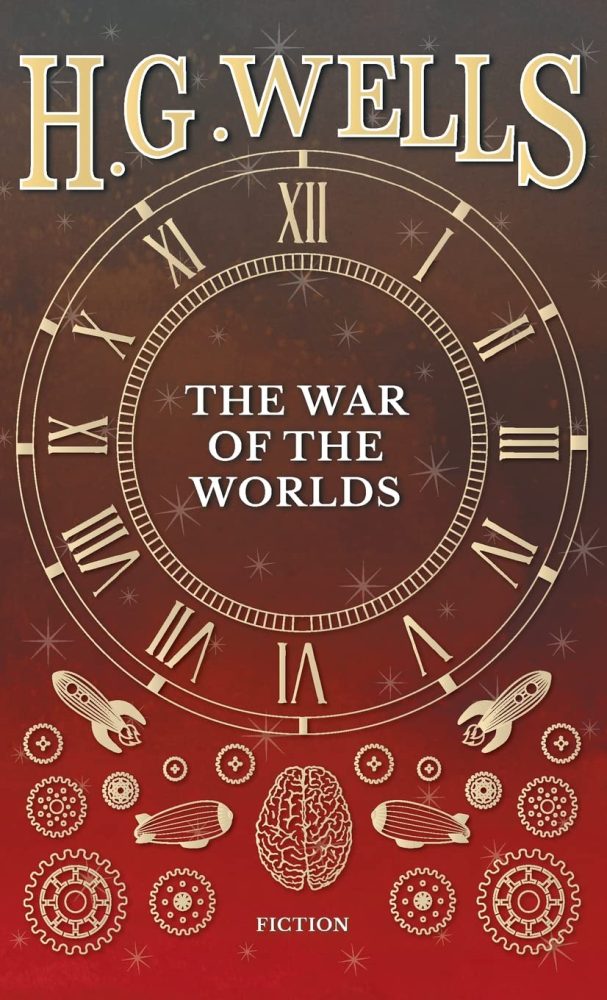
H.G. Wells was a prolific British author of science fiction; so many of his books remain widely-read classics of the genre to this day. While we could have focussed instead on The Invisible Man, The Time Machine, or The Island of Doctor Moreau, we settled on The War of the Worlds for one specific reason.
That is the fact that this classic sci-fi novel is explicitly anti-imperialist; a sharp critique on invasion and colonialism. This reminds us sci-fi fans that the genre has been politically-charged since its earliest days. Sci-fi can be, and so often is, used allegorically to explore real-world political issues.
The War of the Worlds was also adapted into a celebrated and iconic musical by American composer Jeff Wayne, and this was many fans’ first introduction to Wells’ story. This novel, one of the best sci-fi books ever written, follows an unnamed narrator in England as he describes a planetary invasion from hostile Martians, using advanced, strange, and terrifying machinery.
It’s an oftentimes chilling story, in which our protagonist and everyone around him feels powerless, running and hiding and simply hoping to survive. As well as trying hard to understand the whats, hows, and whys of this sudden and terrifying invasion. Returning to its political allegories, The War of the Worlds manages to put the reader in the shoes of a confused, frightened, and powerless innocent faced with invasion.
Buy a copy of War of the World here!
Frankenstein by Mary Shelley
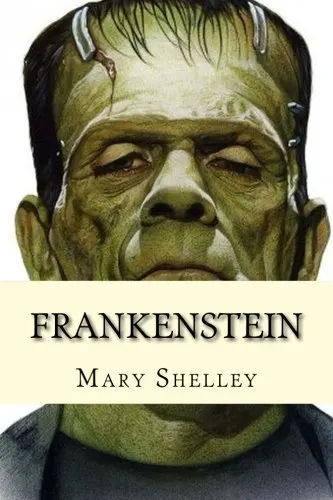
Mary Shelley’s Frankenstein is a lot of things. Written by a girl who, at the time, was not even twenty years old, Frankenstein is considered to be the originator of science fiction literature. Shelley was the daughter of groundbreaking feminist writer Mary Wollstonecraft, wife of romantic poet Percy Shelley, and author of (in my opinion) the greatest novel ever written.
Frankenstein is both a classic of the gothic genre and the first ever sci-fi novel. Two hundred years after its publication, it is heralded as a classic and a masterpiece by so many metrics. The novel tells the story of the titular Victor Frankenstein, a young man obsessed with conquering death after the loss of his mother.
While studying at university, Victor digs up graves and gathers body parts, gradually assembling them into an enormous new creature, into which he hopes to breathe new life. His experiment is a success, but the creature frightens him into fleeing, leaving our tragic hero to roam the world alone and learn life without a father or a friend to help him.
Thus begins a frightening cat-and-mouse hunt between the arrogant and careless Frankenstein and his confused, lonely, but intelligent creation. Frankenstein is gothic, it is frightening, and it is a masterpiece of science fiction and horror.
The first ever sci-fi novel is also one of the best sci-fi books ever written (actually, in this writer’s humble opinion, Frankenstein is the very best novel ever written, full stop).
Buy a copy of Frankenstein here!
Foundation by Isaac Asimov
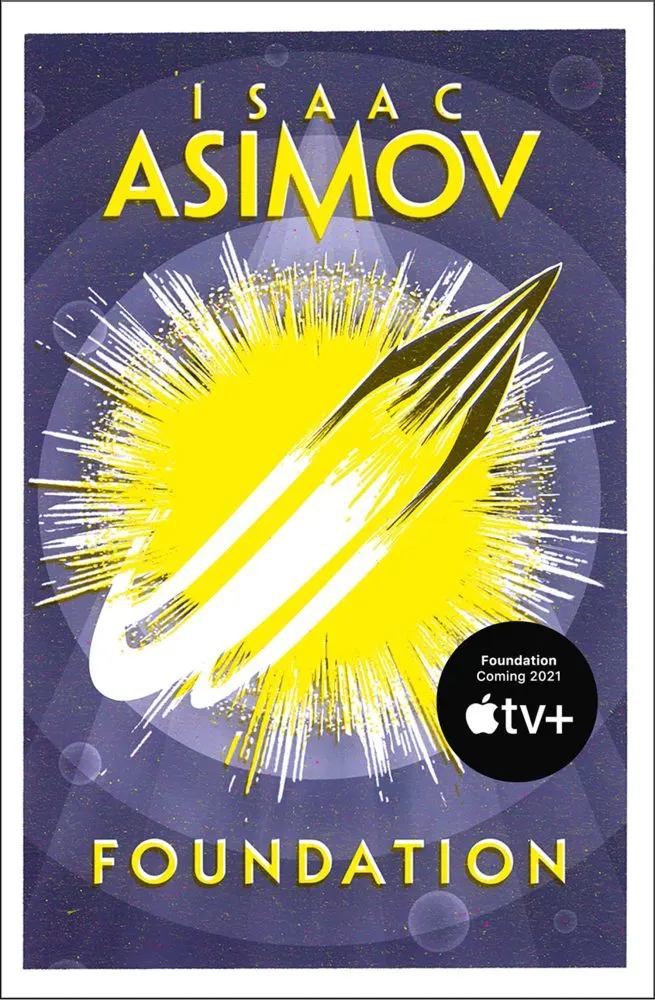
Alongside his British counterpart of the same period, Arthur C. Clarke (below), Isaac Asimov was considered one of the mid-century writers to push the sci-fi genre further forward. He alone wrote some of the best sci-fi books ever, was also a professor of biochemistry, and helped popularise the subgenre of “hard science fiction”.
Foundation, which is the first in a trilogy inspired by the fall of the Holy Roman Empire, is perhaps his most beloved and celebrated work. The titular Foundation is a fictional institute that exists to collect and preserve the history of a now fallen Galactic Empire into something called the Encyclopedia Galactica.
This first novel of the trilogy is separated into five stories which, together, tell the story of the early days of the Galactic Empire. The first story introduces us to Hari Seldon, founder of the Foundation. Seldon is a mathematician and psychologist who manages to predict the fall of the empire before it happens.
Seldon argues that the creation of the Encyclopedia Galactica will not stop the empire’s collapse, but it will make the future slightly brighter than what he currently predicts. Foundation was a novel that pushed the genre of science fiction in bold new directions, and is for this reason regarded as one of the best sci-fi books ever written.
Buy a copy of Foundation here!
Do Androids Dream of Electric Sheep? by Philip K. Dick
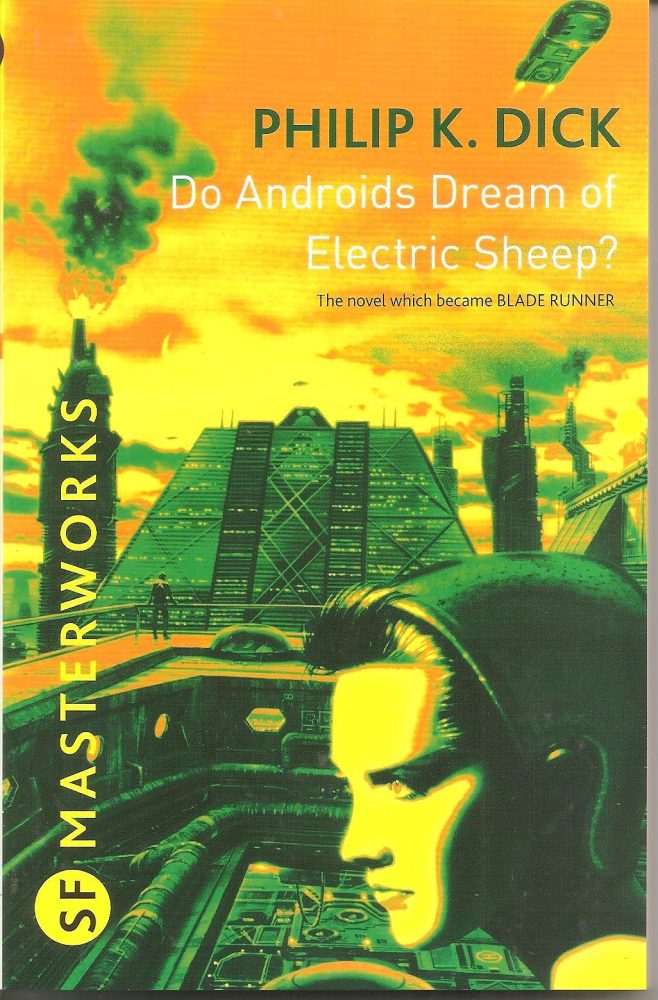
Perhaps best known as the novel that inspired Ridley Scott’s 1982 film Blade Runner, Do Androids Dream of Electric Sheep? remains its author’s most celebrated work. While, in this writer’s opinion, Scott actually went a lot deeper into the philosophy that Dick’s original novel presents us with, the film could not have existed without this groundbreaking sci-fi story.
Do Androids Dream of Electric Sheep? is set in a bleak future world; nuclear war has led to a polluted planet on which many animal species have gone extinct. For this reason, a large portion of the human race has fled off-world, and on Mars people are provided with an android that will serve their needs.
Occasionally, androids escape from Mars and head to Earth, desperately seeking freedom from slavery. Our protagonist, the iconic Rick Deckard, is an android bounty hunter (or blade runner). Rick also dreams of one day owning a real animal of his own, as a show of status; right now, all he has is an electric sheep which lives on the rooftop of his apartment building.
Do Androids Dream of Electric Sheep? was one of the first sci-fi stories to explore the notion of humanity, consciousness, and the soul — as well as who gets to be “free”. An enormously influential novel, this one is required reading for sci-fi fans who really want to be left puzzling over a few big philosophical questions. One of the very best sci-fi books of its era.
Dune by Frank Herbert
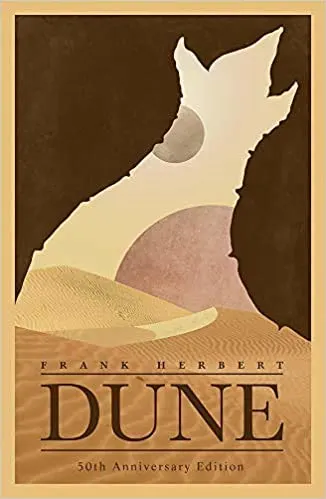
There are sci-fi novels, and then there are sci-fi novels. Some are well-respected, well-loved stories by great writers. Others spawn fandoms and even entire industries. While Dune isn’t on the same pop-culture level as Star Wars or Star Trek, it is perhaps their nearest equivalent in the world of books and literature.
An enormous space opera full of intricate and political world-building, Dune is a thematically dense creature that explores enormous ideas. These ideas stretch from those of power and autonomy all the way to tackling the toxic tropes and habits of narratives and storytelling.
Dune is dauntingly large in its scope, both in terms of the galactic world it presents us with, and also the themes it aims to explore and tackle. Set in a far-distant future, the world of Dune is reminiscent of mediaeval Europe, in which noble houses control certain areas of space.
Our protagonist, Paul Atreides, is the son of one such noble house, and that house has just been given stewardship of the planet Arrakis. Arrakis is a desert planet rich in something called “spice”, a drug that is vital for so many aspects of life in this world. But Arrakis is also a dangerous and almost inhospitable place.
The novel takes us on a journey across the planet, as we learn about complex political games, subterfuge, manipulation, and Shakespearean backstabbing. Few of the best sci-fi books are as detailed, well-plotted, well-considered, and well-formed as Dune. One of the first great political space operas, Dune remains at the peak of this sci-fi sub-genre.
2001: A Space Odyssey by Arthur C. Clarke
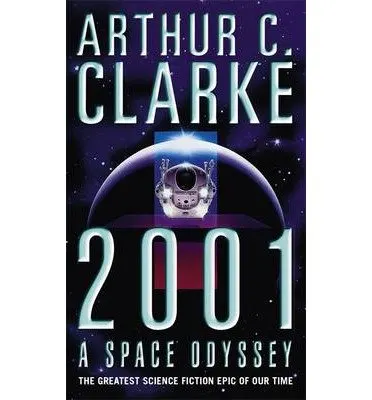
Arthur C. Clarke is one of the great names in science fiction; a legend of the craft. Childhood’s End, Rendezvous With Rama, and The City and the Stars are all captivating sci-fi classics, but none are as recognisable as 2001: A Space Odyssey.
Made most famous by the Stanley Kubrick film of the same name, 2001: A Space Odyssey actually has a curious history. Kubrick himself originally came up with the concept, and approached Clarke to help him flesh it out into a full story.
This led Clarke to turn 2001 into a full novel of his own, and even write several (increasingly less successful) sequels. In fact, the novel was actually published shortly after the film’s release. The story of 2001 begins in Africa, with prehistoric man. A mysterious and advanced alien race places a strange monolith on Earth which helps to advance the minds of humans.
The monolith’s influence leads the early humans to develop tools and even use them on each other in acts of jealousy and violence. We then fast-forward to a future in which a similar monolith has been found on the moon. This one provides coordinates that point towards one of Saturn’s moons.
From here, a dangerous journey out into the deep reaches of space begins, as we wonder what this alien race is and what they want with us. The scale of excitement and intrigue in 2001: A Space Odyssey is all but unmatched, and the novel features plenty of dread, fear, and big questions about the nature of our existence. Easily one of the best sci-fi books ever written, 2001: A Space Odyssey is an iconic piece of science fiction literature.
Rendezvous With Rama by Arthur C. Clarke
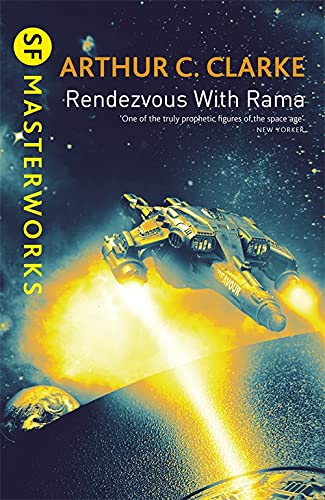
No sci-fi author does mystery and wonder as well as Arthur C. Clarke did; he captured human curiosity and tenacity, presenting it on the page as compelling tales of science fiction. Rendezvous With Rama is the perfect example of this. A relatively short novel with a very simple premise: humanity’s first glimpse of life beyond our planet comes in the form of a craft that finds its way into our solar system.
The titular Rama is observed to be alien in nature, manufactured, and that’s all. And so, a crew is sent out into the depths of space to attempt contact with it. The majority of this novel is that crew’s exploration of Rama, documenting what they find onboard, and attempting to make sense of it in our own human terms.
Rendezvous With Rama is Arthur C. Clarke flexing his brain muscles, wondering both what if we found life beyond our horizon? and what form might that life take? This is the kind of novel that sparks our sense of wonder and fascination as readers, a novel simple in its execution but overflowing with possibilities. A masterpiece of the genre and one of the best sci-fi books ever written.
Buy a copy of Rendezvous With Rama here!
The Left Hand of Darkness by Ursula K. Le Guin
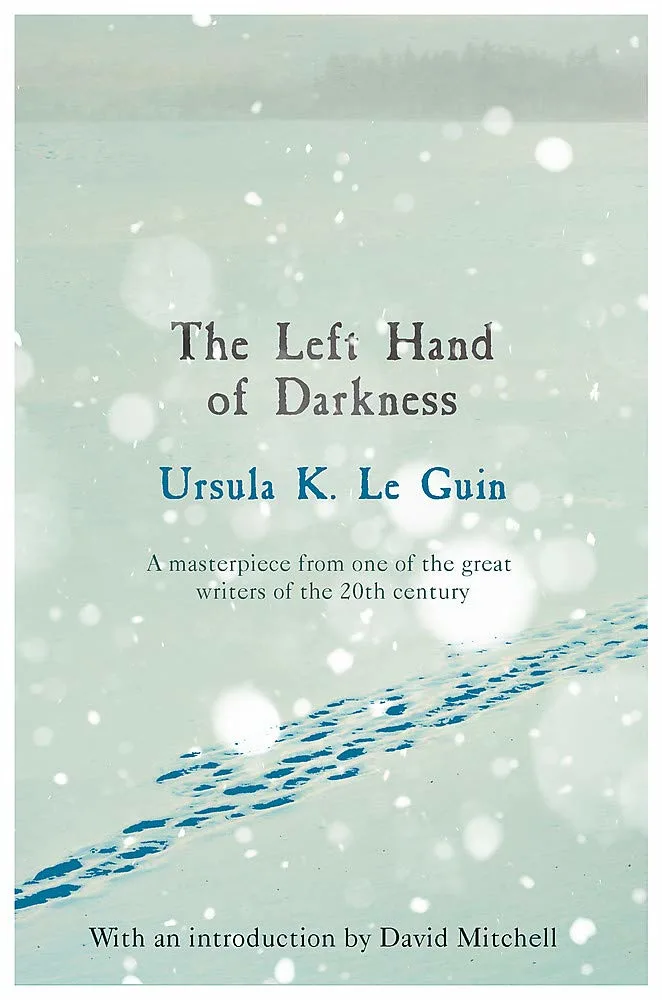
Ursula Le Guin was an author who did so much for both the sci-fi and fantasy genres; an incredible woman of great moral integrity. She loved art, and felt strongly about giving voices to the voiceless. There aren’t many authors as revered for their works in both the sci-fi and fantasy genres, but Le Guin was incredibly special.
Her fantasy Earthsea Quartet inspired countless future authors, and her sci-fi novel The Left Hand of Darkness is a vital piece of feminist science fiction literature. The Left Hand of Darkness is a sci-fi novel which follows protagonist Genly Ai, an envoy from Earth who travels to a strange, icy world called Gethen.
Ai hopes that Gethen will join a confederation of planets of which Earth is a part. Our protagonist, however, is surprised and fascinated by the fact that Gethen’s population are “ambisexual”, which here means they have no fixed gender. Every humanoid on Gethen is androgynous 90% of the time, except for the few days per month when they mate and thus choose a gender to present as for that short time.
This concept exemplifies the novel’s core theme of exploring ideas surrounding gender, and how we allow those ideas to impact modern society. Ai has arrived on a planet entirely unburdened by the societal segregation of gendered groups, a world of Le Guin’s own imagination. As a transgender writer, this is something that fascinates me personally a great deal.
The Left Hand of Darkness has touched many readers on a deep emotional level, as it asks questions about the impact of gendered society and how gender divides work to isolate us as groups and as individuals. It’s also, quite simply, an exceptional piece of science fiction; a blend of Star Treke-sque space opera and speculative, philosophical sci-fi, making it one of the best sci-fi books ever written.
Buy a copy of The Left Hand of Darkness here!
Kindred by Octavia E. Butler
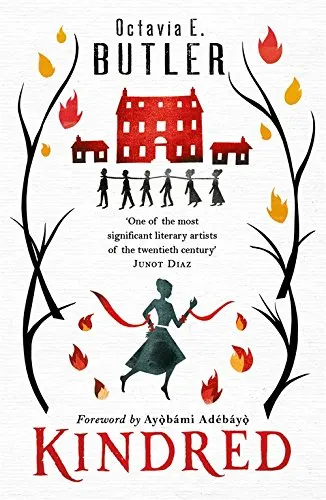
A generation-defining science fiction novel and one of the best pieces of American fiction to come out of the 20th century, Kindred is a true sci-fi masterpiece; one of the very best sci-fi books of all time. Written by genius American author Octavia E. Butler, Kindred is considered by many to be her magnum opus, a piece of literary science fiction.
Originally published in 1979 and set in 1976, Kindred follows a Black writer named Dana and her white husband Kevin ( who is also a writer) as they find themselves inexplicably tethered through time to a boy and his slave-owner family on a 1815 Maryland plantation.
When the novel begins, Dana and Kevin are unpacking after moving to a new house in California, when she finds herself teleported back 150 years to a plantation in Maryland and the sight of a drowning red-headed boy. Dana saves the boy from drowning and immediately finds herself facing down the barrel of a white man’s gun, before being yanked back through time to her present.
As it transpires, the drowning boy is Rufus, an ancestor of Dana’s who will father a child with one of his family’s slaves, and Dana is now caught in a loop: any time Rufus’ life is threatened, she is pulled back to save him. Similarly, if she is put in harm’s way while in the past, she is sent back to 1976. On her third journey back to 1815, her husband is dragged back with her.
Being a Black woman married to a white man, Dana is assumed a slave, and Kevin her owner. Kindred is a sci-fi novel about cruelty and compassion, about the importance of education and empathy. A true masterpiece of science fiction by one of the US’s most important literary voices, Kindred is one of the most important and best sci-fi books ever written.
Flowers for Algernon by Daniel Keyes
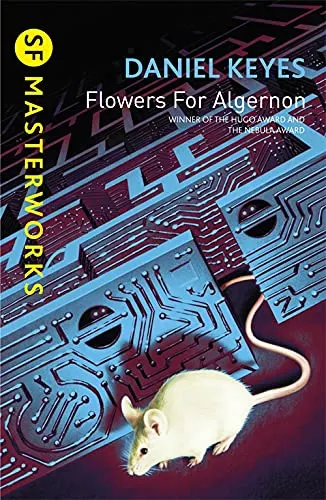
Originally written as an epistolary short story, Flowers for Algernon was later expanded into one of the best sci-fi books ever written. The novel for which Daniel Keyes is best remembered is a true masterpiece of the genre, using science fiction to explore themes of value, intelligence, and human rights.
Our protagonist, Charlie, is an “intellectually disabled” man in his thirties who works in a bakery. Charlie is soon made a test subject for intellectual development. The first test subject was the titular Algernon, a mouse who underwent experimental surgery with impressive results, and Charlie will be the first human test subject.
As the novel, written as a diary from Charlie’s perspective, progresses, we see his intelligence grow, and with it his observations, his relationships, and even his grammar. In this way, Flowers for Algernon uses the epistolary style of prose to great effect.
Charlie’s development from a man of lower-than-average intelligence to one of genius status leads us to question the ways in which we treat one another based on our intelligence. This is a sci-fi novel with valuable themes to consider, and the ways in which Keyes explores those themes also tug viciously at the reader’s heartstrings.
Like Frankenstein’s creature, Charlie is a tragic hero, mocked and feared and patronised by ordinary people, and his later intelligence embitters him towards the world around him. A remarkable masterpiece of the genre, Flowers for Algernon is one of the best sci-fi novels ever written, without a doubt.
The Hitchhiker’s Guide to the Galaxy by Douglas Adams
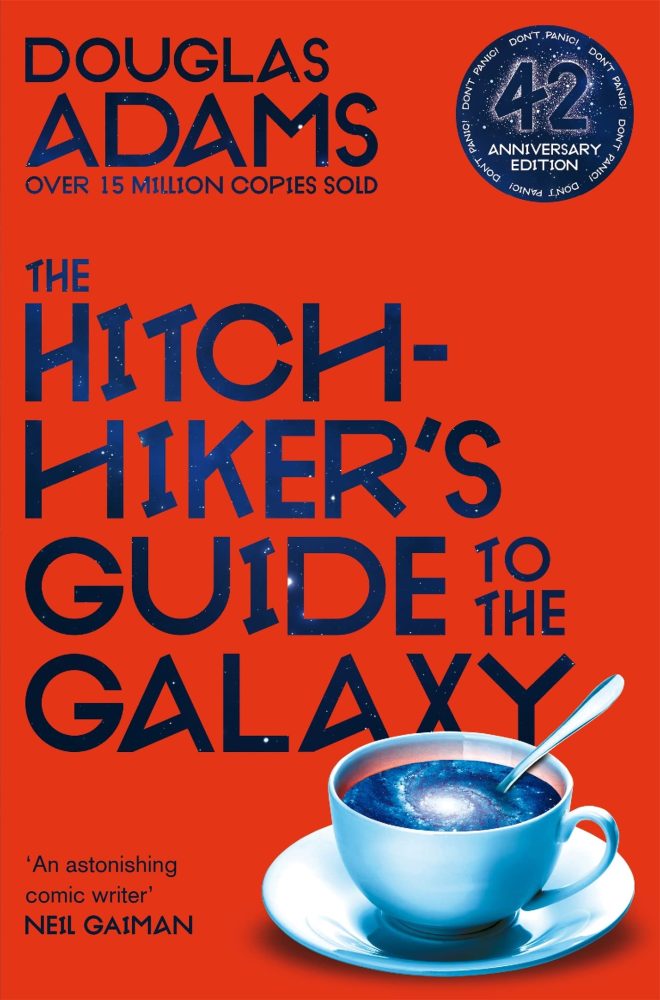
Douglas Adams did something truly remarkable with the writing and publication of this, the first book of a series of sci-fi comedy. The Hitchhiker’s Guide to the Galaxy is, in many ways, not only a dedication to the legacy of British humour, but also the perfect example of it in literary form.
Witty, satirical, absurd, and even borderline nonsensical at times, The Hitchhiker’s Guide to the Galaxy represents everything that’s great about the legacy of British humour. However, because of Adams’ unique imagination, and his frankly and ingeniously odd way of looking at the world, this novel also remains one of the best sci-fi novels ever written.
Our protagonist is an unassuming and unremarkable British man named Arthur Dent, who is annoyed that his home is about to be demolished to make room for a road. The same thing is also about to happen on a much larger, scale, as a race of unpleasant aliens called the Vogons plan to demolish Earth to make room for a galactic bypass.
Dent is rescued by his friend, who turns out to be an alien living on Earth to do research for the titular Hitchhiker’s Guide to the Galaxy, and from there a galactic adventure unfolds. A depressed robot suffering an existential crisis and a Galactic President who stole an experimental starship help form the dysfunctional band of protagonists in Douglas Adams’ sci-fi comedy masterpiece.
This is a novel that makes fun of philosophy, of what is often the purpose behind science fiction stories: remarking on the big questions about ethics, possibility, and existentialism. But through all of that satire, it’s also a rollicking sci-fi adventure in its own right, and one of the best sci-fi books ever written.
Buy a copy of The Hitchhiker’s Guide to the Galaxy here!
Slaughterhouse-Five by Kurt Vonnegut
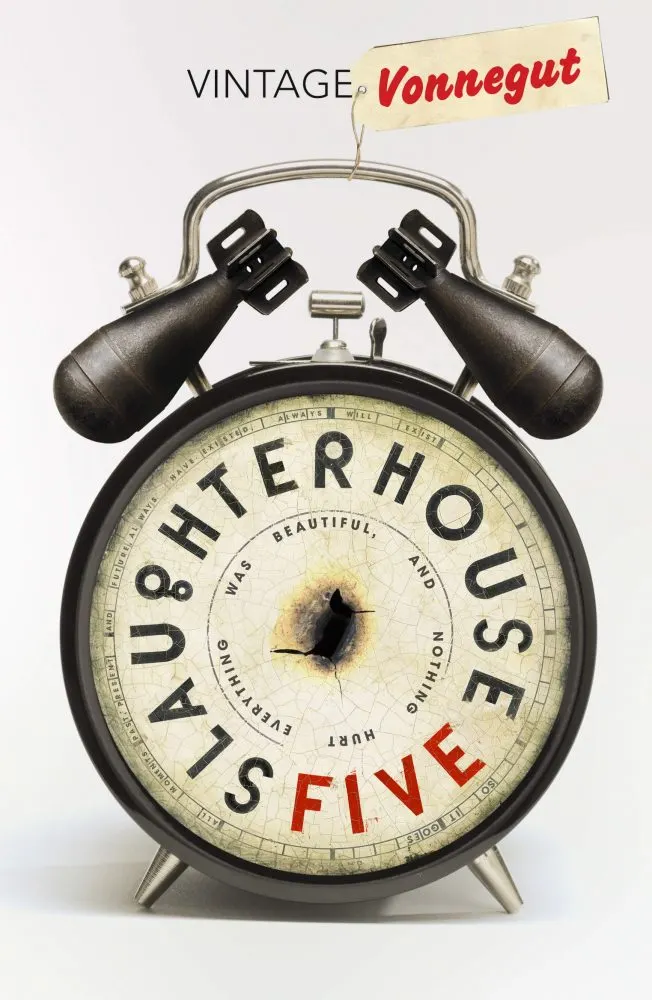
There never has been, and may never be an author quite like Kurt Vonnegut. A brilliant satirist who used science fiction to explore deep, dark political themes of the 20th century. Side note: I actually have a friend who did an entire PhD on Kurt Vonnegut. Now that’s dedication. Anything I have to say here will pale in comparison to his knowledge.
Written during the Vietnam War, and displaying aggressively blatant anti-war themes and messaging, Slaughterhouse-Five remains Vonnegut’s most celebrated novel. Based in part on Vonnegut’s own life as a serviceman during World War II, Slaughterhouse-Five follows the life of a man named Billy Pilgrim.
Pilgrim was an American PoW who experienced and survived the firebombing of Dresden, and who later was abducted by aliens and taken to a planet called Tralfamadore. We spend some of the novel living through Billy’s experiences through World War II, then his life back home post-war, and finally his abduction and the time-twisting that follows.
It’s a strange novel that throws out surreal and dreamlike concepts about seeing in four dimensions, travelling through memories, and being held in an alien zoo. Considered a work of postmodernism, Slaughterhouse-Five is an expressly anti-war book that explores this perspective through surreal science fiction and satire.
Red Mars by Kim Stanley Robinson
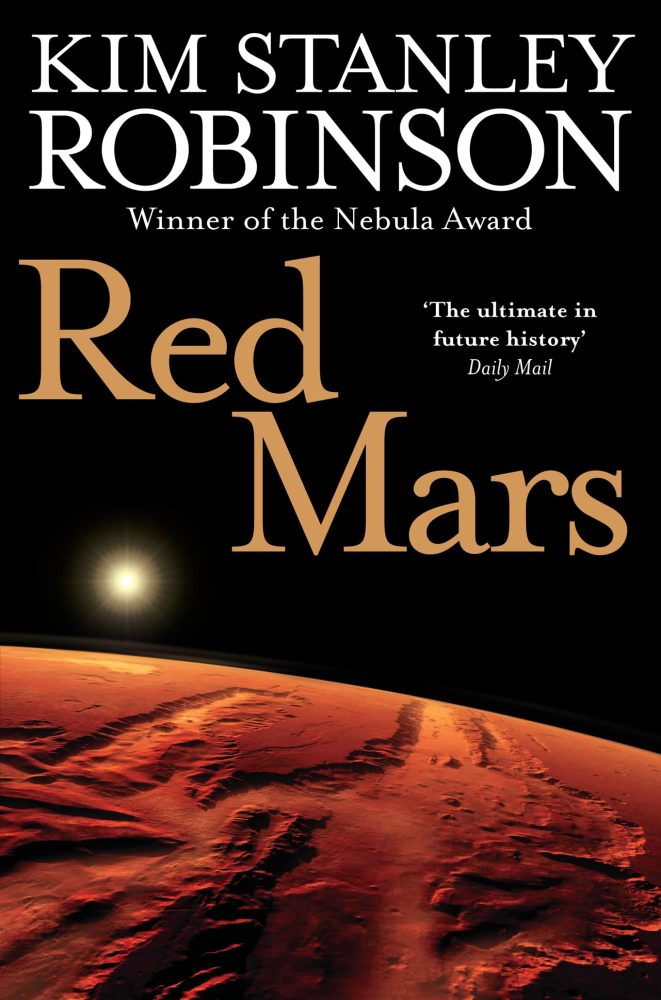
Kim Stanley Robinson’s Mars Trilogy is a trio of classic sci-fi novels written and published through the 1990s, crowned with a collection of short stories in 1999 titled The Martians. The first of this trilogy is Red Mars (followed soon after by Green Mars and Blue Mars). Together, this trilogy won all of the major science fiction awards: Nebula, Hugo, and Locus.
The trilogy follows the steady and gradual terraforming of Mars by human hands, with Green Mars picking up fifty years after the ending of Red Mars. This first novel in the trilogy begins in 2026 and follows the crew of the Ares, an enormous ship housing a hundred humans who will begin the process of colonising and terraforming the red planet.
Red Mars is a piece of hard science fiction that takes us on a multiple scientific and philosophical journeys as we follows the lives and responsibilities of these (mostly American and Russian) colonisers. This is a sci-fi novel about human endeavour, about what is ethically right and proper when it comes to advancement, correcting past mistakes, and looking to the future of our species.
It takes gusto to write a sci-fi novel as dense — both scientifically and philosophically — as Red Mars but Kim Stanley Robinson not only pulled it off; he carried it forward with two more books and a short story collection. Red Mars has, since its publication, gone down in history as one of the best sci-fi books ever written, and rightly so.
Hyperion by Dan Simmons
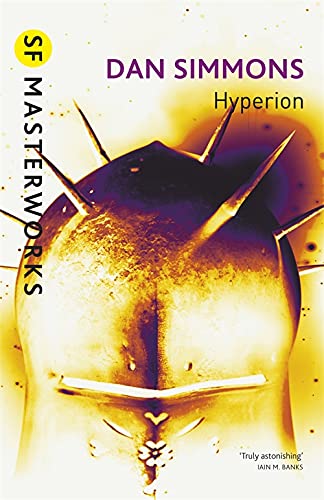
Dan Simmons is an author whose books are all based on, or influenced by, the works of classic authors like Dickens, Chaucer, and Shelley, as well as the poet John Keats (whose poem inspired the name of this novel). While he is also known for writing historical thrillers like The Terror and Drood, Simmons also wrote a fantastic sci-fi series called the Hyperion Cantos, and the first novel is a must-read.
Set in a far-future in which a spacefaring human empire exists known as the Hegemony of Man, Hyperion follows a group of pilgrims who have arrived on the planet of Hyperion. Hyperion is home to strange Time Tombs which move backwards in time, and are guarded by a strange native creature called the Shrike.
Modelled after Chaucer’s Canterbury Tales, Simmons’ Hyperion presents us with each pilgrim’s backstory, and what led them to the titular planet of Hyperion. A wonderful exercise in world-building and sci-fi storytelling, Hyperion is a classic of American science fiction.
Einstein’s Dreams by Alan Lightman
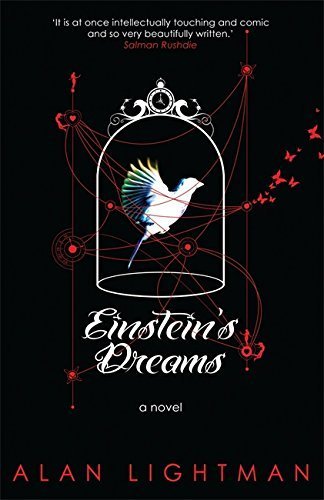
While wonderfully unique, unusual, and original in its concept, Einstein’s Dreams is a simple enough novel to describe. Set in 1905, when Albert Einstein worked at the Swiss patent office, this novel is presented as a series of dreams, in the form of small vignette chapters, each exploring a different scientific what-if scenario.
Einstein’s Dreams is science fiction in the sense that it is about the possibilities of science, presented as fiction. The novel’s prologue presents us with Einstein himself, walking into his office, sitting at his desk, and beginning his work. He can see the Alps in the distance and the streets are waking up below.
From here, each vignette presents us with an idea, a what-if scenario, based within the science of time. For example, given the fact that time slows down as you move further from a centre of gravity, what if there’s a reality in which people live as far from the Earth’s surface as possible?
These people live in houses on mile-high stilts, up in the mountains. They age slower and remain youthful, and are proud of this. But the people on the surface have waved away this vanity and live more hedonistically. In another vignette, Lightman posits a centre of time, in which all cells stop moving. Reaching the centre of time means freezing in place and never moving forwards.
In this world, people travel to the centre of time to hold onto their children and their loved ones; to avoid ever seeing pain or death. There are dozens of these what-if scenarios, all framed as dreams that Einstein himself experiences night after night through the months of 1905. A wonderfully unique and experimental piece of science fiction, and one of the best sci-fi books of its time.
Buy a copy of Einstein’s Dreams here!
I Who Have Never Known Men by Jacqueline Harpman
Translated from the French by Ros Schwartz
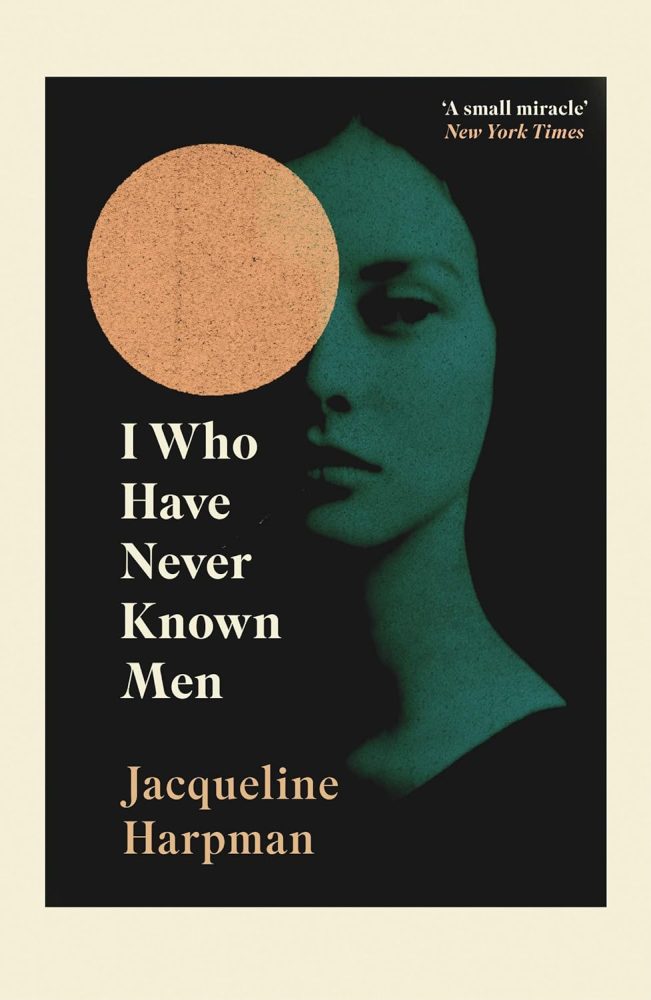
Written by Belgian author Jacqueline Harpman, I Who Have Never Known Men is a mesmerising, surreal, and thought-provoking work of post-apocalyptic science fiction set in an unspecified time and place. When we first meet our protagonist, she is the youngest of a group of forty women caged in a bunker. The others retain vague memories of their old lives, but she has only ever known this place and its male guards; she has never seen the sky.
In the first of three acts, our protagonist grows into a teenager and develops feelings of curiosity, desire, and companionship. She urges the other women to share secrets and information with her, and she asks questions about their pasts. The guards bring them food but never speak to them, or to each other. Eventually, something goes wrong and the women are able to escape and explore the empty world beyond their bunker.
This is a philosophical story about intimacy, womanhood, and tenderness. It strips human beings of all the social constructs that are built around us, and examines what humanity is left. How does someone who knows nothing of society see the world and the people around her? What is her relationship to herself? How does she draw purpose and identity from nothing at all? These questions and more are explored in this breathtaking novel.
Buy a copy of I Who Have Never Known Men here!
Best Contemporary Sci-Fi Books
Written by a diverse selection of incredible authors, these contemporary sci-fi books were all published after the turn of the 21st century. This means the list will continue to grow as time goes on, and more new and exciting science fiction literature comes our way. If you want to know what great sci-fi books are coming to define this century, this list of the best contemporary sci-fi books is for you.
Children of Time by Adrian Tchaikovsky
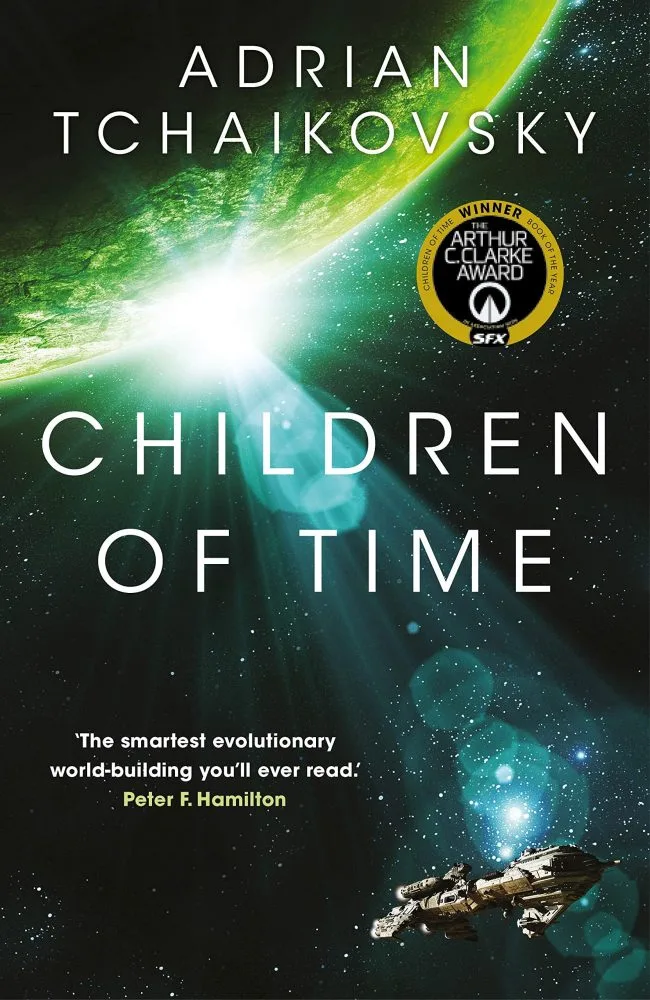
British author Adrian Tchaikovsky first rose to prominence as a fantasy author, but it’s his debut sci-fi novel Children of Time that had readers sitting up and paying attention. After its publication in 2015, this incredible sci-fi novel won the prestigious Arthur C. Clarke Award the following year.
Children of Time begins with a scientist who, along with a small team, adventured into the far reaches of space to experiment with and terraform a planet for human colonisation. Things, however, went horribly wrong, and this eventually leads to the dominant intelligent race on that planet being spiders instead of apes.
Fast-forward to a time when humanity’s last arc of survivors have abandoned Earth and are on their way to this new Earth, hoping to find a new home. What makes Children of Time stand out amongst even the best sci-fi novels of all time is its imaginative and enthralling biological world-building.
The spiders themselves are protagonists as well, and we get to see Tchaikovsky’s sharp and wild mind at work. The author imagines what a society of advanced spiders with human-like intelligence might look like, and it is wonderfully fascinating. So many “wow” moments page after page.
Then there’s how a generation ship full of humans who are clinging to hope operates, and the problems that arise onboard. This is a novel that leans on the subgenre of “hard sci-fi”, bringing us things that are potentially possible, or at least feasible, but also bursting with imagination and big themes to chew on.
Children of Time is near perfect; one of the best sci-fi books you’ll ever read.
Buy a copy of Children of Time here!
Ancillary Justice by Ann Leckie
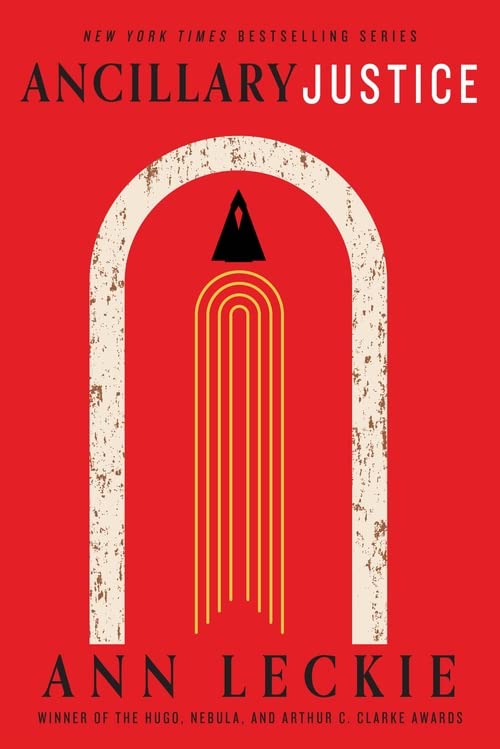
The first sci-fi novel in history to win the Hugo, Nebula, and Arthur C. Clarke Awards, Ancillary Justice is a work of science fiction genius. It might sound hyperbolic to say, but the publication of this novel marked a shift in the landscape of science fiction. This novel, the first of a trilogy, takes the concept of the space opera to dizzying new heights.
Our protagonist is now one singular being, but they weren’t always. Once, the being now known as Breq was an AI in control of a starship and its entire army of drone-like soldiers, known as ancillaries. This starship, the Justice of Torren, served the Radch, an enormous military empire that swallows up planets and civilisations, annexes them, and turns fractions of their populations into more ancillaries.
How, however, after thousands of years as an AI, Breq is a singular unit who has arrived on a lone icy planet beyond the borders of the Radch Empire. Breq is on a mission of revenge, with plans to kill the very person who destroryed what they once were. That person, however, is the very leader of the Radch Empire.
Ancillary Justice is a sci-fi novel of complex ideas; it takes familiar elements of science fiction — galactic empire, artificial intelligence, and more — and twists them into experimentally new and strange things. This is also a novel about gender, to a point. Leckie’s protagonist is unable to tell genders apart and defaults to she/her pronouns, constantly seeking clues to confirm or counter their assumptions.
There’s nothing in the world quite like this novel, an honest and often uncomfortable book about culture and imperialism that took its genre in bold new directions. One of the best sci-fi books ever written.
Buy a copy of Ancillary Justice here!
Exhalation by Ted Chiang

This collection of tales from one of the great sci-fi authors of this century showcases Chiang’s incredible range, both in terms of his approach to the themes and tropes of the genre, and also in terms of his philosophy. Chiang is tackling enormous ethical topics in Exhalation in ways that genuinely have the capacity to reshape how readers interpret the world around them and their place in it.
Stories like Omphalos—set in a world where creationism is real and scientists have discovered the progenitors of life—The Merchant and the Alchemist’s Gate—following a man in ancient Baghdad who is given the chance to use a time portal—and Anxiety is the Dizziness of Freedom—in which a device creates parallel timelines which cause a wave of existential crises across the globe—all have the capacity to shift our relationship to life itself.
The best science fiction can leave readers feeling like their whole world has shifted; they can feel enlightened, enriched, and motivated to think better. That’s what Exhalation does.
A Memory Called Empire by Arkady Martine
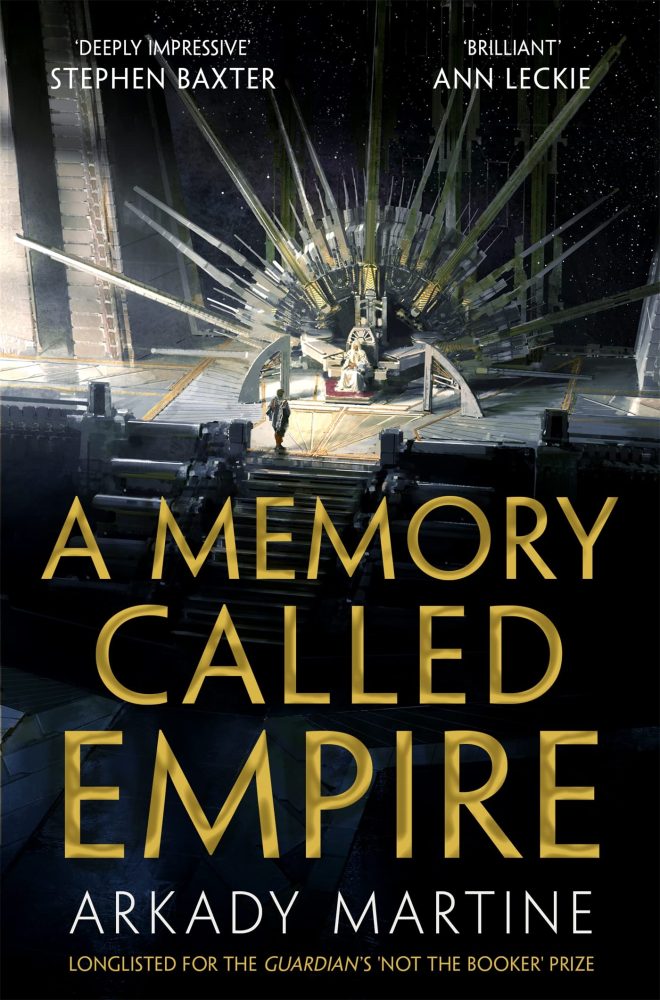
Standing shoulder-to-shoulder with giants of the political sci-fi and fantasy world like Dune and A Game of Thrones, Hugo Award-winner A Memory Called Empire is a colossal feat of plotting and execution. Arkady Martine’s debut sci-fi novel is a book of political intrigue with themes of empire and colonialism.
Our protagonist, Mahit, is a young ambassador from a colony of space stations called Lsel. They are a proudly independent people who fear annexation from the powerful Teixcalaan Empire. Mahit has been sent to the City, capital of the Empire, to replace the previous Lsel ambassador, who held his position for twenty-five years, and whose sudden death is greatly suspicious.
The Teixcalaan Empire has been hungrily gobbling up other formerly independent colonies, and its eyes are firmly set on Lsel. But the Empire has its own issues of civil unrest and domestic terrorism. While trying to find the cause, culprit, and motive behind her predecessor’s murder, Mahit is also falling deeper into the complex political machinery at the heart of the Empire.
Her one trump card is an advanced technology which she and her people have been making use of for generations; something which allows the memories of our ancestors and predecessors to live on in, and merge with the living. A Memory Called Empire is a political novel through and through, a sci-fi book all about the cogs of war, the motives behind colonisation, and the fallout of it.
This is an essential science fiction novel for anyone who wants to see relatable themes and concepts presented in an entirely new and alien world, much like what Star Wars and Star Trek have been doing for decades. But Arkady Martine handles these political moves and themes with imagination, wit, and gusto, writing one of the best sci-fi novels of the past several decades.
Buy a copy of A Memory Called Empire here!
This is How You Lose the Time War by Amal El-Mohtar and Max Gladstone
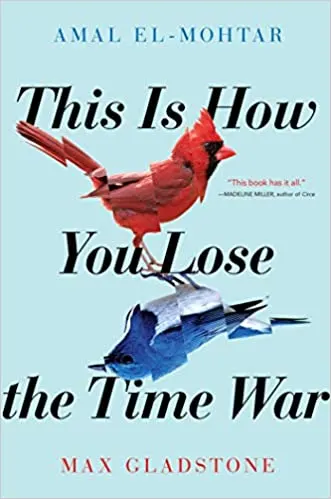
This is How You Lose the Time War is a stunning short sci-fi novel, co-written by two celebrated and award-winning science fiction authors. Primarily, this sci-fi book is a love story. Our protagonists, known only as Red and Blue, are deadly agents who operate for rival factions which are fighting for control of multiple timelines.
While roaming the aftermath of a battlefield, Red finds a letter left by Blue; the letter taunts and flirts with and teases Red, and also reveals that Blue is becoming disenchanted by this ceaseless and seemingly cyclical war between their factions.
From this point, we move between Red and Blue’s perspectives, and those perspectives are divided by letters sent back and forth between the two. As they move through various strands of time that move back and forth through possible pasts and futures, each finds a letter left by the other, and these letters steadily take on a different, more poetic and romantic tone.
From flirtatious taunts to passionate declarations of love, the letters steadily spell out the intense addiction that these two opposing women have developed for one another.
The world-building is also thrilling. Larger-than-life concepts involving time manipulation and riding the threads of time, taking us from Shakespeare’s London to mecha wars on distant planets. This is a wildly exciting modern sci-fi novel that shows us how, no matter the scale of the world, no matter the advancements in technology, love still wins out in the end.
I’m Waiting for You by Kim Bo-young
Translated from the Korean by Sophie Bowman and Sung Ryu
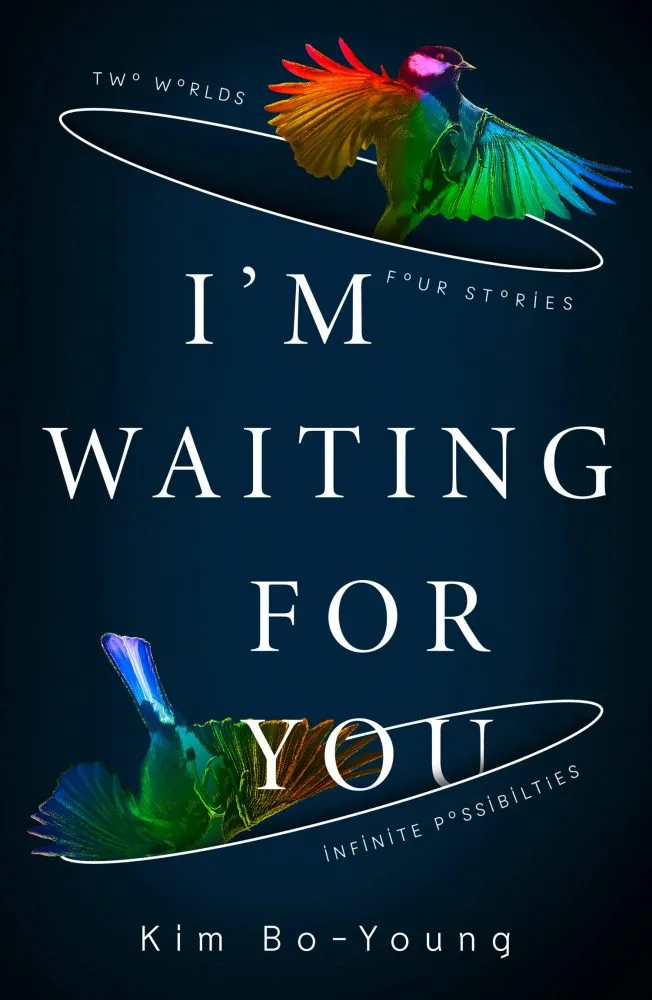
Kim Bo-Young is a legend of Korean literature, and even worked as a script editor on Oscar-winning director Bong Joon-Ho’s Snowpiercer movie. With I’m Waiting for You, readers can see first-hand why she’s such a spectacular sci-fi author.
This collection of four stories is essential reading for fans of modern sci-fi, and it stands tall amongst the best sci-fi books of all time.
The four stories in this collection actually work as two pairs. The first and fourth stories — I’m Waiting For You and On My Way to You — are the same tale told from two perspectives: a bride and groom each making their way home to Earth for their wedding ceremony. The second and third stories — The Prophet of Corruption and That One Life — which are also the longest and shortest tales respectively, are a blend of religion, mysticism, and science fiction.
In these two middle tales, the characters are a set of gods, and it is quickly revealed that they created Earth as a school in which they themselves can learn and grow. The main protagonist of The Prophet of Corruption, Naban, is a god whose prophets, disciples, and children all separated from them like cells. Individually, they spend entire lifetimes on Earth, learning and growing and dying.
Naban believes in asceticism as a school of learning; their children are reborn in low roles; they suffer and toil and eventually return home. But some are rebelling against this approach to living and learning. What makes these stories so tantalisingly addictive is both Kim’s world-building and also her attempt at writing gods as characters, with motivations and behaviours different from our own.
The stories that bookend this collection are each written in an epistolary fashion, as letters to the other. In I’m Waiting For You, our nameless groom is trying to make it to Earth, and is updating his bride each time something goes wrong (and an awful lot goes wrong).
The same is true in On My Way to You, only here the bride has her own hurdles to jump. These two stories are heartbreaking. You’ll root for them, cry for them, hope against hope that things will work out for them.
Vagabonds by Hao Jingfang
Translated from the Chinese by Ken Liu
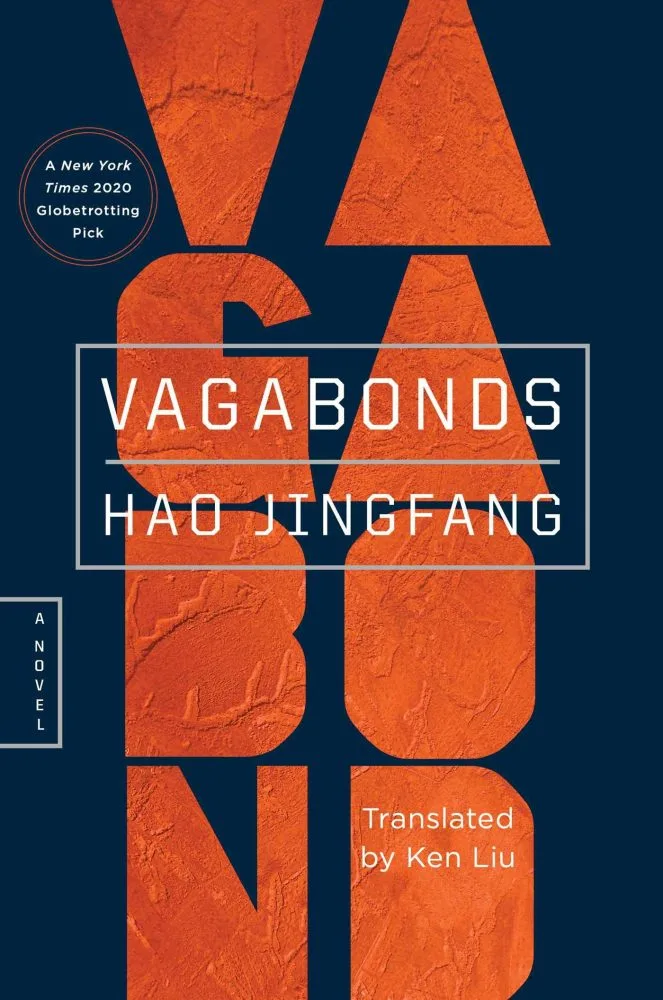
As things stand right now, Chinese author Hao Jingfang’s Vagabonds feels like one of the best sci-fi novels of the century. Vagabonds is a grand, ambitious, considered, philosophical masterpiece of political science fiction.
Taking place in 2201, Vagabonds is set on Mars and focuses on the tensions between Mars and Earth. Similar to the timeline of early USA, Mars was colonised (though unlike the US, it wasn’t already lived on and therefore nothing was stolen).
After its colonisation, Mars was dependent on Earth for supplies, but eventually wanted to strike out on its own and a war for independence ensued. After the war, Earth resembles the greatest extremes of capitalism and Mars is something of a communist utopia.
Forty years after the war, our protagonist, Luoying, is a young Martian woman who has returned to Mars after years of living and studying on Earth as part of the Mercury Group (a batch of young people sent over to learn and improve interplanetary relations).
The big question posed by Vagabonds concerns the meaning of freedom. Each planet views the inhabitants of the other with pity, seeing the other as less free. Terrans are free to pursue different jobs, move cities and countries, and spend their money how they please. Martians are free from the stresses of money, poverty, corporate pressure, unemployment, and unfulfillment.
For their unique freedoms, both planets have their own drawbacks and restrictions. Feeling like she belongs to both cultures, Luoying is seeking answers to the question of what freedom really looks like. Beyond all of this is the world-building. Hao Jingfang provides us with such a detailed and exciting version of Mars, mechanically, politically, and economically. It’s dense but endlessly fascinating.
While it is a long and slow book, Vagabonds is one to get lost in. A genius work of Chinese sci-fi and one of the best sci-fi books of this century so far.
To Be Taught If Fortunate by Becky Chambers
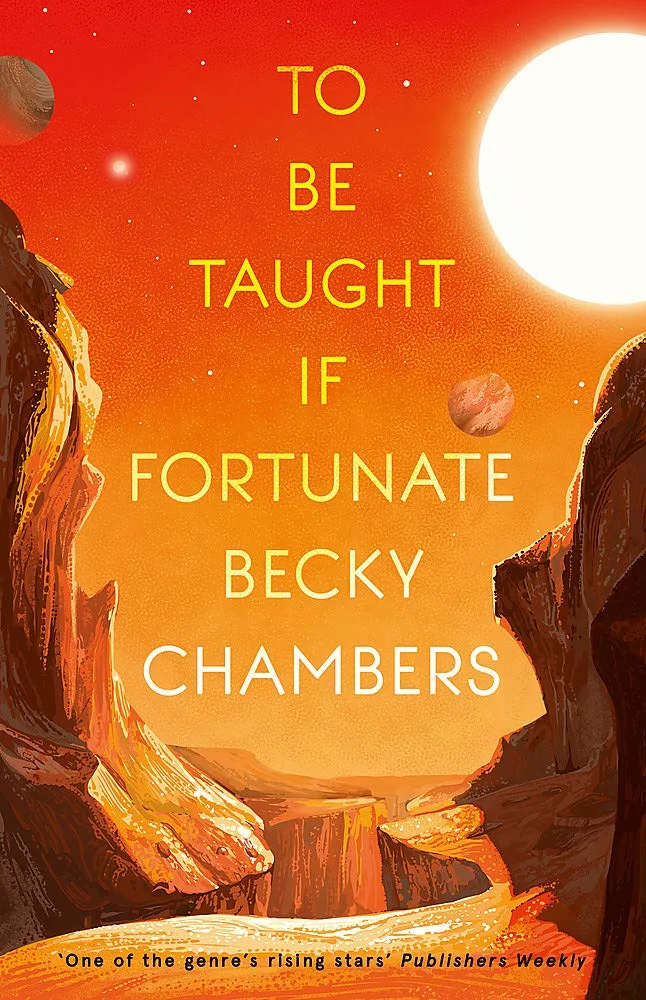
To Be Taught If Fortunate is a hard sci-fi novella from the incredible mind of Becky Chambers. While her Wayfarer series is a sweeping space opera, this is a harder, quieter, more serious story.
This short sci-fi novel is set in a future where a new public space program has been kickstarted by the funding of ordinary people, with a specific view to exploring and discovering and expanding human understanding of the cosmos.
A crew of four people has been sent to a faraway solar system, in order to examine the planets and moons that are believed to harbour life. To Be Taught If Fortunate is another novel that flexes the muscles of Becky Chambers’ imagination. She repeatedly considers what might, reasonably, be found on certain worlds with certain climates.
This is not about imagined civilisations but about biodiversity and small discoveries, about the beauty of life and the magic of exploration. This is a book that celebrates science and what it can achieve. Easily one of the most impactful and comforting modern sci-fi books that you’re ever likely to read.
Annihilation by Jeff VanderMeer
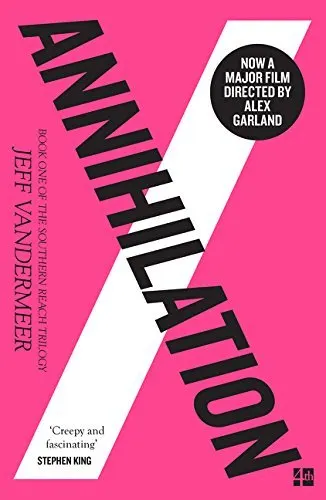
Annihilation is the first in Jeff VanderMeer’s Southern Reach trilogy, and this modern sci-fi novel was also adapted into a film by Alex Garland, director of Ex Machina and Men. While it is the first of a trilogy, Annihilation also works perfectly well as a stand-alone novel, and it is also smartly short.
A novel as strange and surreal as this one choosing not to outstay its welcome is a very savvy decision by the author. Annihilation is set entirely within the limits of “Area X”, an abandoned and marshy part of US coastline which was officially designated a place of ecological disaster.
Our protagonist is a nameless biologist who is part of the twelfth expedition into Area X; the purpose of these expeditions is to explore the strange area and learn as much as possible about what it is and what caused it. Most expeditions end with disaster: insanity, disease, tragedy. And as our protagonist ventures deeper in, stranger things emerge.
The strangest thing being a tower/tunnel which burrows into the Earth. There is a staircase inside and the walls are lined with biblical-sounding gibberish made out of moss, flowers, and other living stuff. The thing that wrote this gibberish is a possibly extraterrestrial humanoid creature dubbed by our protagonists as the “Crawler”.
Annihilation is a sci-fi eco novel of sorts that explores the concept of ecological change and adaptation in the face of difficulty and things beyond our understanding. Lovecraftian, feverishly strange, but also beautiful in a way that only the best sci-fi can be, Annihilation is one of the most addictive and strange sci-fi novels ever written.
Buy a copy of Annihilation here!
Service Model by Adrian Tchaikovsky
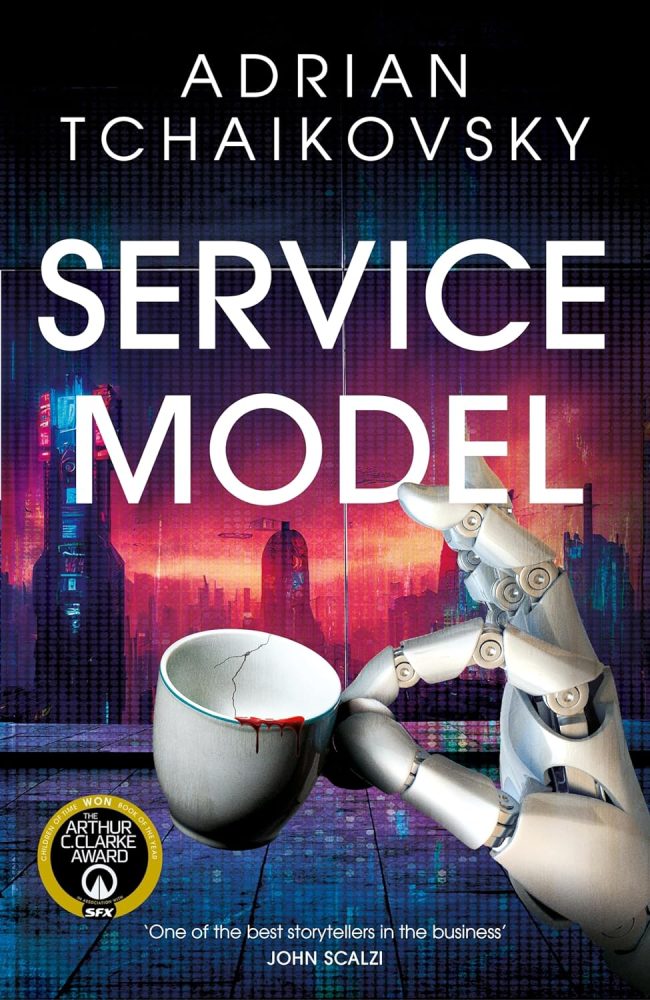
Adrian Tchaikovsky is perhaps best known in the world of science fiction for his enormously expansive imagination and world-building. His stories are fed by big “what if” questions like “What if the dominant species on a planet were spiders?” (Children of Time) or “What if evolution was more like Lego?” (Alien Clay). Service Model, however, is something entirely different.
This is a deeply philosophical novel that plays out like a series of parables starring a lost and wandering robot named Charles. Separated into five parts, each inspired by—and directly named after—an author known for their own style and philosophy (Christie, Kafka, Orwell, Borges, and Dante), Charles’ story is one of searching, questioning, and discovering.
Charles worked as a valet for a wealthy and reclusive master, until one day he killed that master in spite of his own programming, and Charles himself has no idea how this was possible. But the death of his master leads Charles on a series of journeys, each one telling us more and more about how this strange future world operates. All the while, Charles searches for where he might now belong.
Leviathan Wakes by James S. A. Corey
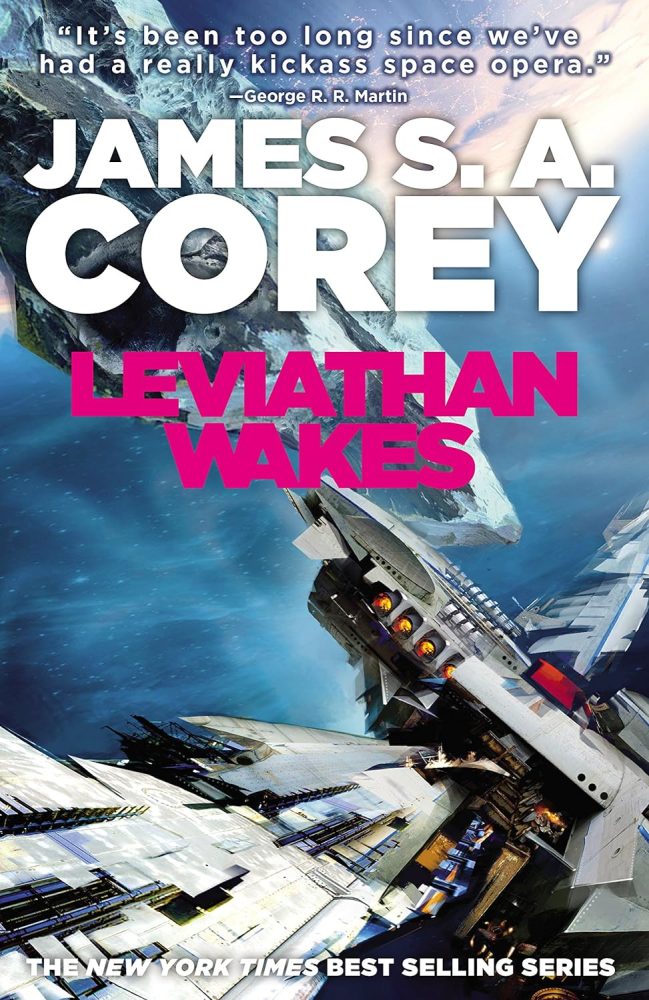
The first book in the nine-novel space opera series The Expanse is set in our solar system’s far-future, and it’s a future that feels entirely plausible. Earth and Mars are the system’s superpowers, and tensions between them are high. But humanity has also colonised many of Jupiter and Saturn’s moons, and the asteroid belt where the toiling proletariat — Belters — live and work.
Our protagonists are Holden and Miller. When the novel begins, Holden is the XO of a transport ship responding to a distress signal. This signal turns out to be a trap, presumably set by Mars, and that trap leads to the destruction of his ship and crew. Now, Holden is the captain of a handful of survivors, and his accusations that Mars have just committed an act of aggression against the Belt may lead to war.
Miller is a cop in the gritty noir sense, and he has been tasked with finding the lost daughter of a wealthy family, whom the prologue tells us was on the ship that sent the distress signal, and has since disappeared. Eventually, his investigation will cause Miller to cross paths with Holden as war between the planets begins to feel inevitable.
Leviathan Wakes is a space opera in the military-political sense, drawing parallels to real-world territorial disputes and tensions both geopolitical and class-related. The future painted here feels entirely plausible, and the twists and turns the plot takes will not disappoint fans of epic science fiction.
Buy a copy of Leviathan Wakes here!
How High We Go in the Dark by Sequoia Nagamatsu
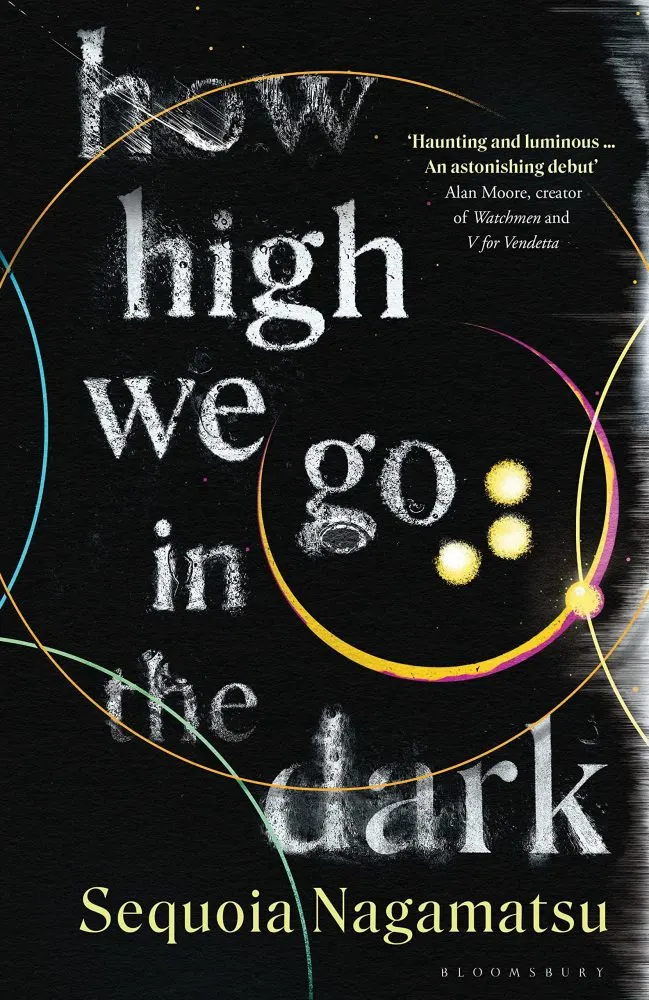
It’s not too hyperbolic to call How High We Go in the Dark the next step in science fiction. This is one of the best sci-fi books you’ll ever read; a bold new approach to the genre of science fiction. Reminiscent of the narratives and themes found in the works of Emily St. John Mandel, with a sprinkling of Black Mirror, Sequoia Nagamatsu’s debut novel is essential reading.
We begin with a scientist whose daughter, also a scientist, has recently and tragically died while on an expedition to the Batagaika Crater in Siberia. Cliff heads to Siberia to continue his daughter’s work, with the support of her colleagues. The work involves investigating the melting permafrost to see if any potentially long-frozen diseases might be uncovered and spread across the world.
This is a very real issue that scientists fear, and that is part of what makes How High We Go in the Dark so compelling and chilling. And of course, a virus is uncovered and it does spread.
From here, we follow a host of different first-person narratives in a world where infected children have their organs slowly mutated until they fail completely. Multiple sci-fi themes and tropes are explored in new ways here, including the question of human intelligence when a pig that was being used to grow human organs develops advanced intelligence and even telepathic speech.
These disparate themes and narratives all work together so beautifully, like an orchestra of science fiction concepts. It’s beautiful and makes for a very addictive read.
The Hierarchies by Ros Anderson
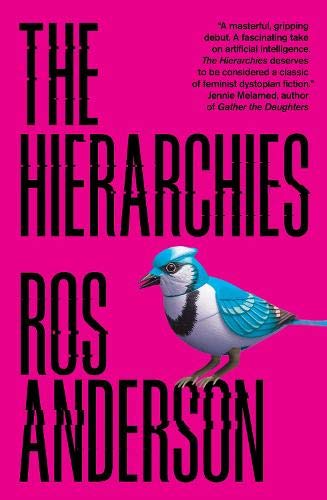
With her indie sci-fi novel The Hierarchies, Ros Anderson has managed to do something fresh and new with the well-trodden themes of consciousness and machine learning. All the while, she is also taking a bold, modern approach to contemporary feminist writing.
Our protagonist, Sylv.ie, is a sex robot. She exists to simply please the man who owns her. Sylv.ie’s owner is a married man whose wife is pregnant, and she gives birth soon after the novel begins. Sylv.ie must stay upstairs, sit idle, browse the internet (here called the Ether), and wait for her husband to come to her with his needs — be they sexual, intellectual, or social.
Sylv.ie’s moral code is governed by a short list of four “hierarchies”, similar to the three laws of robotics by Isaac Asimov (above), and she is able to learn and develop by plugging herself into the internet. Soon enough, however, Silv.ie wakes up in hospital for a “routine” check. She gets a shiny new vagina and a simple software update. But upon returning home, she realises that a large section of her memory is missing.
When she finds a coded diary from her past self, a self she no longer remembers, she learns that she has already attempted to escape once, and she must do again. The Hierarchies is a very nuanced and captivating exploration of consciousness, learning, personal growth, freedom, and purpose. It tackles themes that sci-fi has been tackling since its inception but in bold new ways.
One fresh and fascinating aspect of the novel is the inclusion of an angry group which call themselves “bio women” who protest the existence of female sex robots. These women are allegorical of conservative bigots who look down their noses at transgender women and sex workers, and their inclusion makes this one of the most bold and dynamic sci-fi books you’ll ever read.
Buy a copy of The Hierarchies here!
Redshirts by John Scalzi
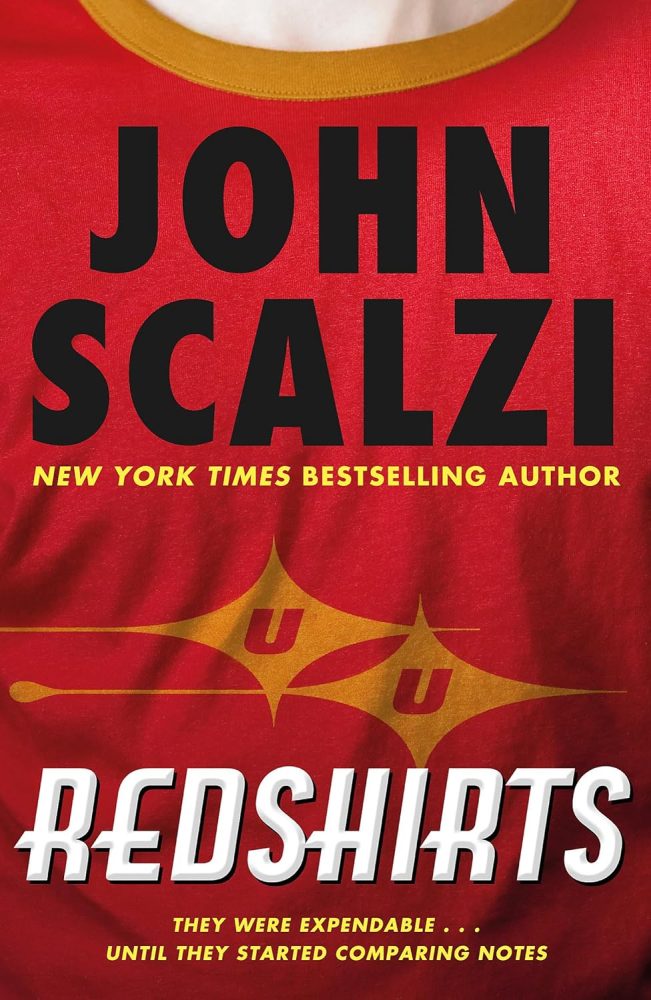
It’s safe to say that many science fiction fans are Trekkies, and it’s hard to imagine a more entertaining, thought-provoking, and exciting novel for a Trekkie than Redshirts. Every Star Trek fan will immediately understand the title of Scalzi’s novel: a reference to the joke about disposable crew members of the Starship Enterprise, all of whom wore red in the show’s original series. This novel takes that joke and turns it into a captivating conspiracy.
But whether you’re a Trekkie or not, Redshirts is one of the most solely entertaining and hilarious sci-fi novels you’ll ever read. Its cast is a handful of ensigns who have all been recently recruited to serve on the starship Intrepid. The novel’s world is similar to that of Star Trek, but legally distinct. And it doesn’t take long for our wily bunch of ensigns to notice the strange logical inconsistencies on their ship, as well as the abnormal death rate of its crew members.
So much of the Intrepid doesn’t make sense. Members of the bridge crew are all but impervious to harm, yet when they land on an alien world at least one ensign will inevitably die. Add to that the periodically odd ways that bridge crew members speak and behave. Something strange is going on, and what is eventually revealed is at once exciting and hilarious. Few sci-fi novels captivate and excite their readers like Redshirts does.
The Kaiju Preservation Society by John Scalzi
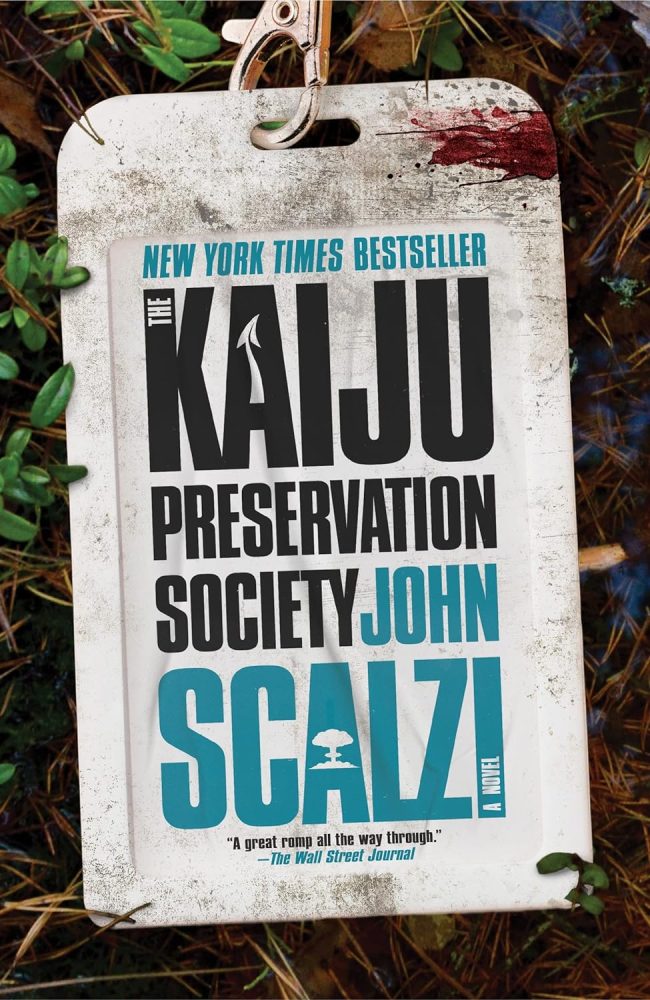
John Scalzi’s works occupy a wonderfully unique space in the world of sci-fi literature. Often lighthearted and vibrant, they move with all the pace and excitement of a good action comedy, but they are also smart, innovative, and full of heart. The Kaiju Preservation Society is the best example of this: a 250-page sci-fi romp set in a parallel Earth populated by enormous monsters, each with its own biological nuclear reactor.
Our protagonist, Jamie, is unceremoniously fired from his corporate job in the early weeks of the 2020 pandemic. After six months of delivering takeout, he is offered a mysterious job by an old friend; upon accepting it, Jamie is whisked away to Greenland, where he passes through a portal which takes him to Kaiju Earth. There, he will forge bonds with eccentric scientists and work to support the delicate kaiju ecosystem of this strange world.
This is a novel that’s as fun and funny as it is clever. Intricate and imaginative world-building paves the way for an exciting adventure and so much character growth. You’ll speed through this book and want to start it all over again as soon as you’re done.
Buy a copy of The Kaiju Preservation Society here!
Tower by Bae Myung-hoon
Translated from the Korean by Sung Ryu
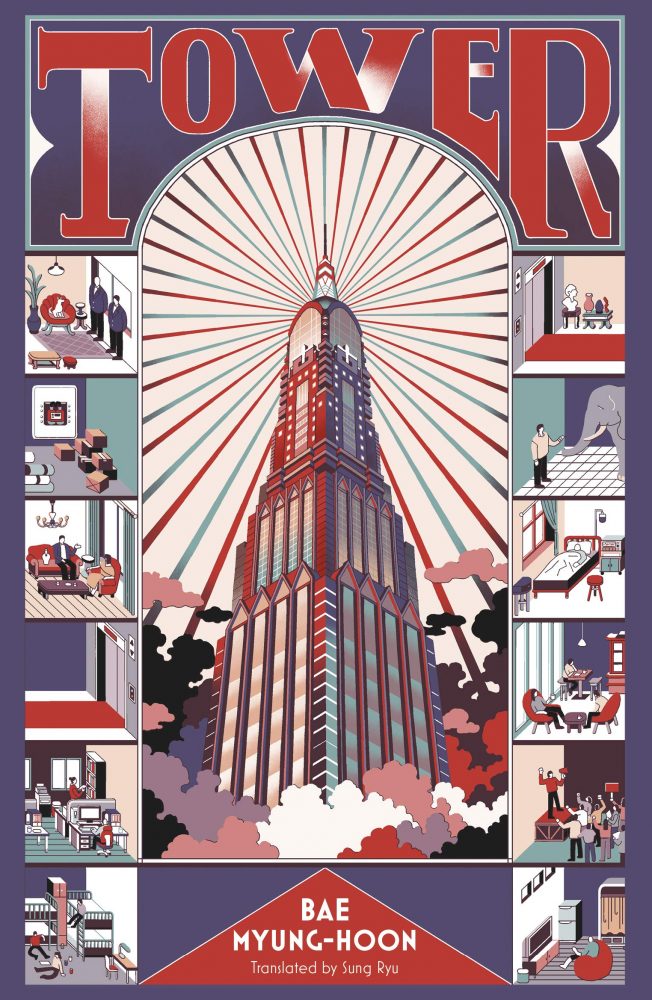
Tower is a truly unique and boundary-pushing piece of science fiction from famed South Korean author Bae Myung-hoon. As its name implies, this wonderfully unique piece of sci-fi literature is set entirely in an enormous tower. This titular tower is a nation unto itself, home to 500,000 people.
The book is divided into a series of interconnected speculative tales, all set within this solitary tower nation known as “Beanstalk”. The world-building is fantastic, as the tower needs to be a believable place in order for the author’s disparate tales to work.
Infrastructure, economy, politics, and daily life all need to be accounted for and designed in a way that the reader can understand and appreciate. The six stories in Tower are tied together by the place itself and by recurring characters and events. And each story serves to further build the world while also telling an entirely self-contained tale.
In that sense, this is a unique piece of Korean fiction that blends the concepts of the novel and the short story collection. The stories are separate but interlinked by more than just their setting. And each tale also, as all great science fiction does, poses an ethical, political, or philosophical quandary for us to muse over.
This is a fantastic novel; one of the best sci-fi books of the past several years, and one of the coolest Korean novels in translation.
In Ascension by Martin MacInnes
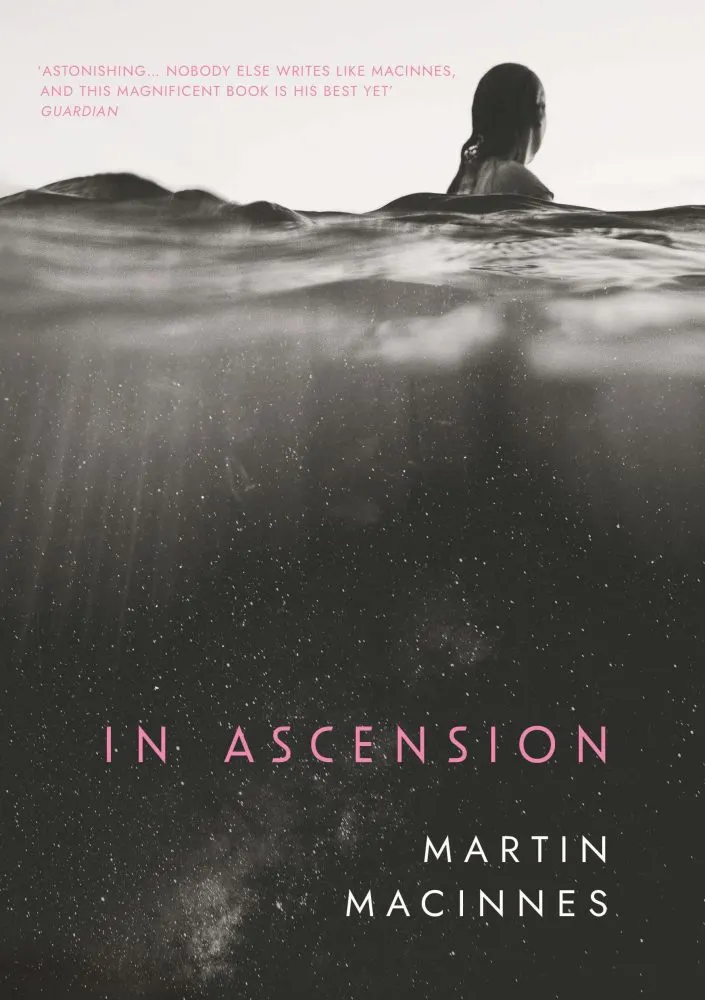
Written by Scottish author Martin MacInnes, In Ascension is a literary sci-fi masterpiece that has the potential to change the way you think and feel about the world around you, about what we are, where we came from, and where we might go. Set in the present day, In Ascension follows a Dutch biologist named Leigh, who grew up in Rotterdam and is captivated by sea life.
In the novel’s first part, Leigh joins an expedition to the north Atlantic ocean, to explore a deep sea vent that might tunnel deeper than the Mariana Trench, and therefore house life never seen before. The life in this undersea vent, untouched for billions of years, has the potential to behave like a time capsule, taking us back to the earliest forms of life on this planet.
What Leigh discovers in the vent takes her to the Mojave Desert, to a job working with a NASA-like space agency that is using a newly-discovered form of fuel to send people to the furthest reaches of our solar system and beyond. The questions that In Ascension poses, and the incredible discoveries made, ask the reader to deeply consider that old cliche: we are all made of star stuff.
In Ascension is a modern sci-fi novel that takes us from the most inaccessible parts of the deepest darkest ocean to the furthest point in our solar system. And, as we explore these places old and new, big and small, we ask ourselves what we are, where we came from, where we will go, and how it is ultimately all the same. We are all star stuff.
Buy a copy of In Ascension here!
Light From Uncommon Stars by Ryka Aoki
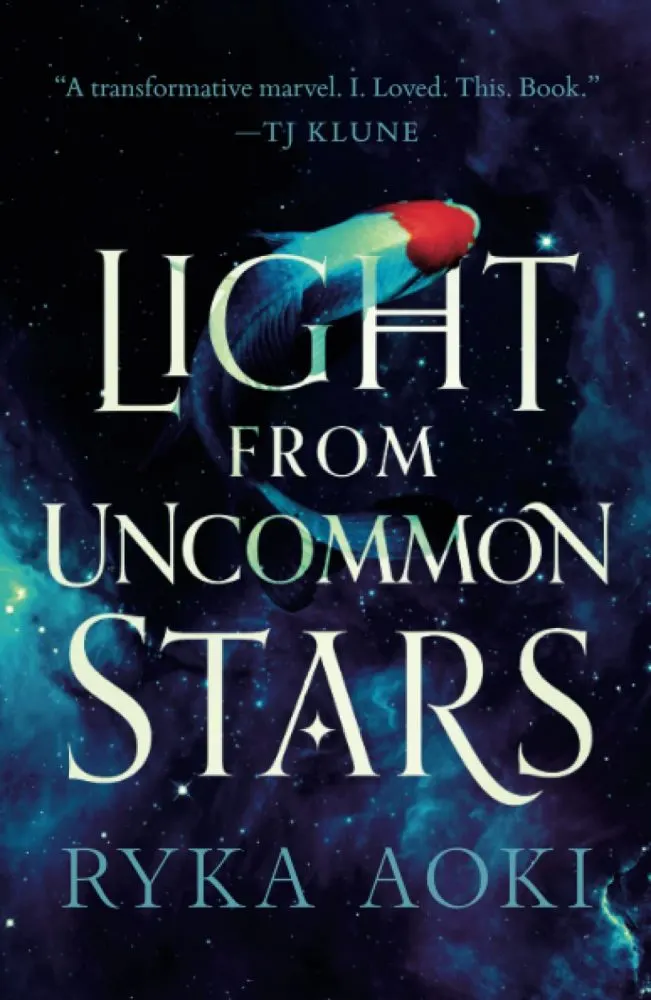
American author Ryka Aoki’s Light From Uncommon Stars is a blending of genres that mixes queer science fiction with urban fantasy. Here, we have three protagonists: a transgender violin prodigy, a space alien who sells donuts at a California diner, and an ambitious musician who made a faustian deal with the devil.
This is one of the finest modern sci-fi books by women; emphasising migration and found family. Our three protagonists are all running from something: an abusive home, hell itself, or a galactic empire.
It’s an experimental novel about love and music and kindness and growth. It reminds us to love one another and, maybe even more importantly, to love ourselves. Ryka Aoki celebrates music with this novel, emphasising its power, its healing properties, its ability to bring us together and bring out the best in us.
It’s also a sci-fi novel with a focus on everyone who isn’t a white man. Set in California, its protagonists are all queer women from other places: Japan, Vietnam, outer space. In this way, Light from Uncommon Stars is a perfect American novel; one that reminds us of who and what created the US as it exists today.
The Employees by Olga Ravn
Translated from the Danish by Martin Aitken
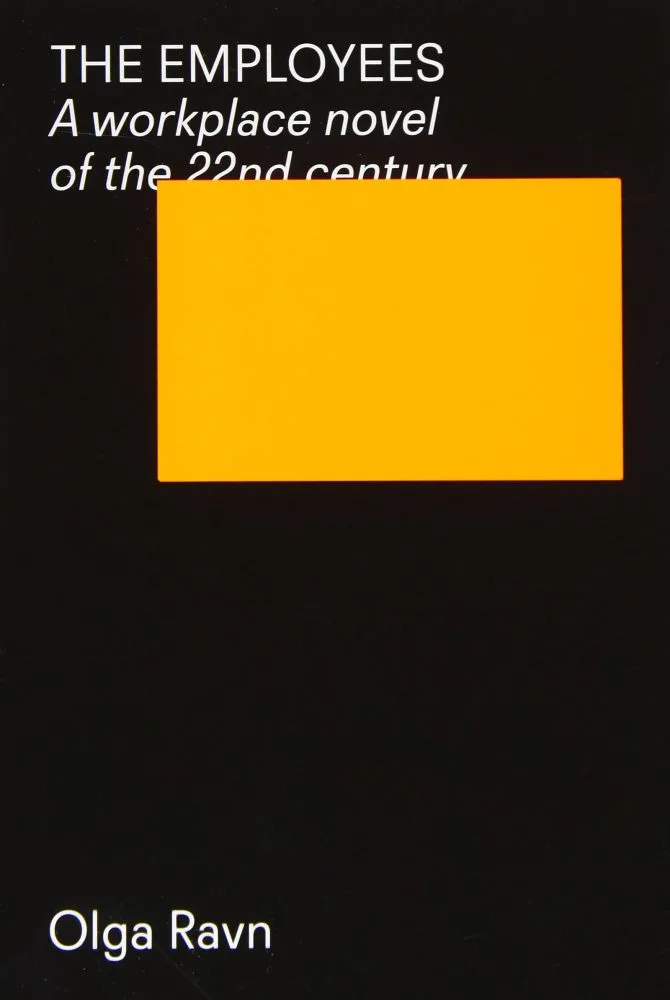
Shortlisted for the International Booker Prize 2021, The Employees is a short sci-fi novel by Danish author Olga Ravn. Set on a massive spaceship in the 22nd Century, this is a satire of hyper-capitalist workplace culture. The Employees is structured as a series of interview statements with various workers about a ship which has just picked up a collection of unknown objects from a newly discovered planet.
The objects are slowly and subtly changing the minds and feelings of the workers, both human and humanoid (robot AI). And the company is observing these changes through a series of interviews with both groups.
This fascinating Danish sci-fi novel explores the theme of AI and the meaning of life in truly fresh and original ways. The Employees also satirises the cold and uncaring relationship between a company and its workforce. The company sits silent and invisible as its human employees grow increasingly nostalgic about life on Earth, while its robot employees feel lost, wistful, and even angry as they too become nostalgic, but for what?
The concept of AI and the ethics behind it are considered from new angles, such as when one humanoid observes that it has been programmed to behave faithfully, but all it sees are hypocritical and unfaithful humans all around it. The Employees is one of the most original and unique science fiction novels to come along in years, and an absolute must-read amongst even the best sci-fi books of this century.
Buy a copy of The Employees here!
Toward Eternity by Anton Hur
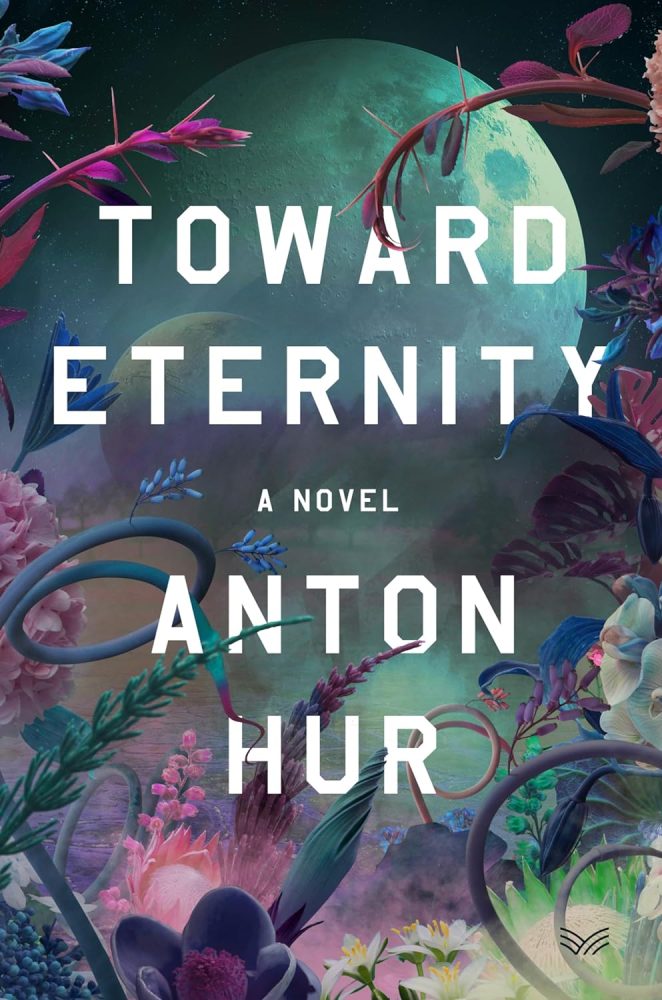
Toward Eternity is the astonishing debut novel of Korean-to-English translator Anton Hur—a novel of incredible scope, as well as consideration for the things that make us human. This grand yet concise work of science fiction begins in South Africa, with clinical trials for a cancer cure which replaces all of the body’s cells with nanites (robotic cells which render the body essentially immortal).
The first patient to survive this treatment is a literary researcher who created an AI that can interpret, study, and appreciate poetry. But one day, after his treatment is complete, Yonghun vanishes after hearing the voice of his late husband. Soon after, he reappears, but is aware that “he” is no longer himself, but rather an entity that now inhabits his body and shares his memories.
From here, the novel takes us through the lives of several other people, deep into the future and beyond the bounds of our planet. Toward Eternity explores the definitions of life, humanity, and immortality through the concepts of language, memory, and art. The novel asks us to ponder the importance of stories, and how we are only what we create. We are our language and our poetry. A truly beautiful, breathtaking work of science fiction.
The Seep by Chana Porter
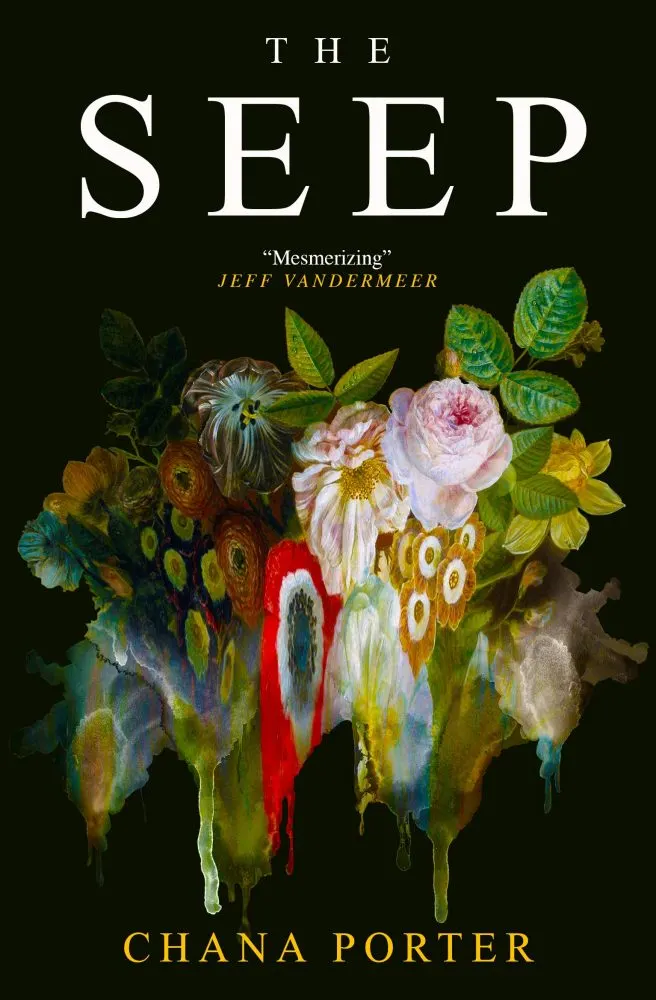
Chana Porter’s short novel, The Seep, is a unique kind of sci-fi that pushes the genre in new directions while also harkening back to the golden age of the genre. In spite of how modern and boundary-pushing this novel is, it also has strong John Wyndham vibes, which is fun.
The titular Seep is an alien lifeform which invades Earth in a very quiet way. It literally seeps into our water supply, into our minds, and our lives. It causes capitalism to fall and life to become far more hedonistic for all. Under the thrall of the Seep, all is possible. People live longer, pursue their dreams, change their physiology, and live free.
Our protagonist is a fifty-year-old trans woman who, after many years of living with the Seep, creating art, and retraining as a doctor, is suddenly floored when her wife says she wants to use the Seep to be reborn afresh, as a baby with no memory of her life.
The Seep is a novel about what a world of infinite possibilities might look like, when we still retain our need for companionship and love and kindness. It’s a book of uncomfortable juxtapositions and a real twist on the alien invasion concept.
The Mountain in the Sea by Ray Nayler
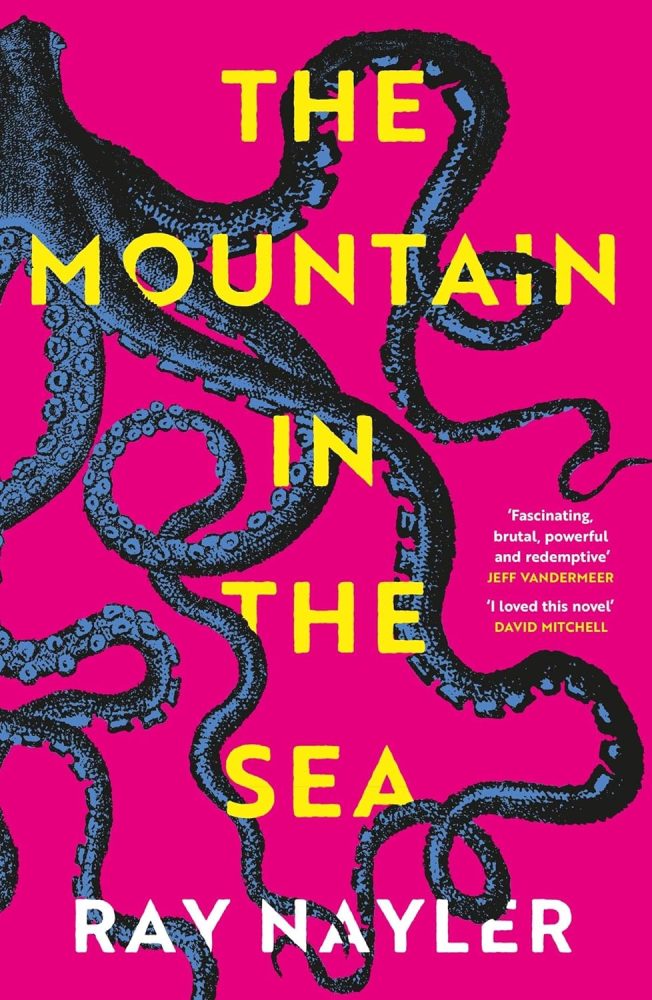
Ray Nayler pours his own career background of diplomacy, marine conservation, and environmental science into his speculative SF novel The Mountain in the Sea. Set in a near future where borders and allegiances have shifted, and corporations hold most of the visible power in the world, this novel explores big themes of evolution, communication, intelligence, and consciousness.
Our protagonist is Ha Nguyen, an expert in all things octopus, who has been brought to a Vietnamese archipelago to investigate rumours of a sea monster: a potentially hyper-intelligent octopus that is said to have hunted and killed local divers and fishermen. The corporation that brought her here is DIANIMA, tech leaders in artificial intelligence. And Ha’s assistant is the world’s first fully conscious android, developed by DIANIMA.
The big question is: what does DIANIMA’s CEO really want with these octopuses? The novel answers this gradually, while also exploring the very nature of consciousness and communication, both via the octopuses themselves and Ha’s new android friend. This is a wonderful work of speculative science fiction.
Buy a copy of The Mountain in the Sea here!
Iron Widow by Xiran Jay Zhao
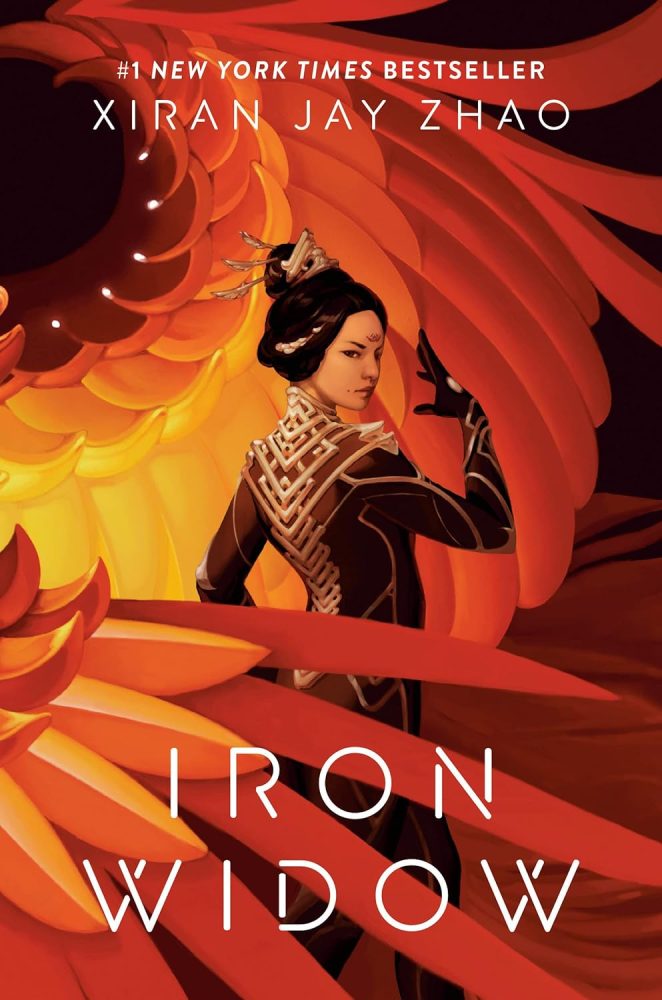
Inspired by the life of China’s first and only empress, Wu Zetian, Iron Widow is a YA sci-fi novel set on a world divided by the Great Wall. On one side are the alien Hundun, and on the other are the Huaxia people, a society of peoples united in the fight against their invaders. The Huaxia build enormous mechs — known as Chrysalises — from the metal bodies of the Hundun, and these mechs are piloted by men and their female concubine co-pilots.
This war has been raging for two thousand years, and Huaxia civilisation has been built around it. Women, with their feet bound, are second-class citizens who exist to marry, give birth, or otherwise be offered up by their families as concubines to Chrysalis pilots. Concubines are little more than batteries, their qi drained by the men. By the end of a battle, the concubines are often dead.
Our protagonist is Wu Zetian, a young provincial woman whose older sister recently died as a concubine, but Zetian knows her sister didn’t die in the cockpit, but was murdered by the pilot. And so she vows to follow her sister’s footsteps and kill the pilot in revenge. This is only the beginning, however. Zetian will eventually take on Huaxia’s patriarchal society itself, while uncovering many truths about the ways in which the people live.
Iron Widow is a remarkable sci-fi novel that blends historical influences with Chinese cultural elements and a sprinkling of fantasy tropes. It is a boldly feminist novel that rages against not only patriarchy, but divides between race and class as well. Ambitious, angry, and awesome, this is a work of absolute brilliance in the worlds of YA fiction and science fiction.
Buy a copy of Iron Widow here!
Your Utopia by Bora Chung
Translated from the Korean by Anton Hur
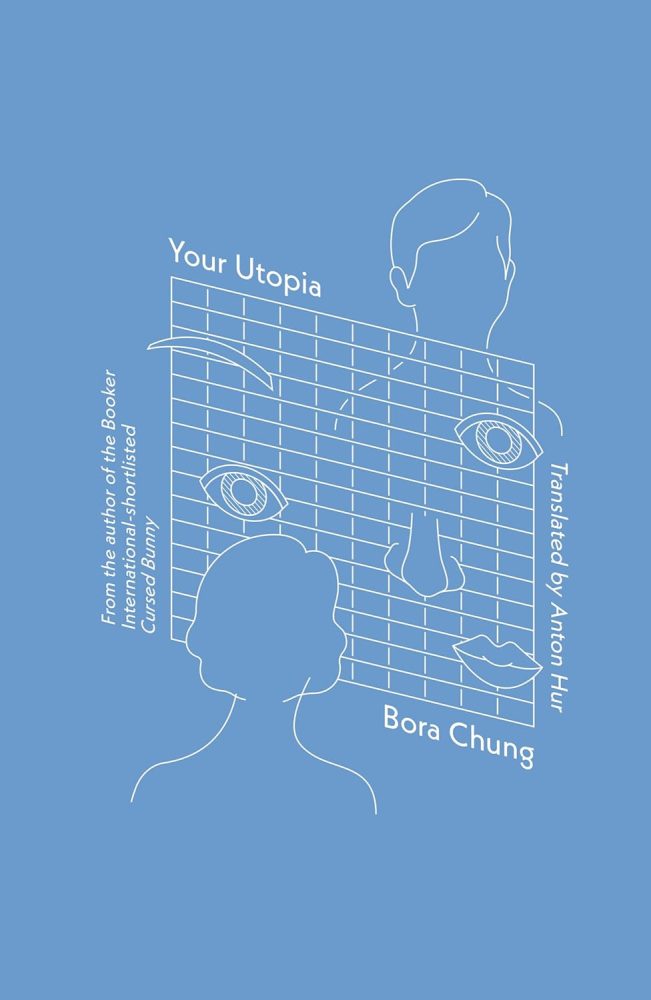
Bora Chung is a legend of short Korean fiction. Her collection Cursed Bunny—which leans hard into the horror but also blends sci-fi and fantasy in a fairy-tale style—shook the world of literature. Your Utopia forgoes all other genres for an entirely science fiction approach, though it still utilises the tropes and effects of horror stories and fairy tales to weave a varied emotional tapestry across its sci-fi stories.
Take, for example, the book’s longest story, The End of the Voyage: a chilling horror-tinged tale about an “ark” ship that flees an Earth that has been ravaged by a disease which turns people cannibalistic, only to find that the virus is already onboard. Then there’s A Song for Sleep: a short, sweet story about the sentient elevator of an apartment building that falls in love with an elderly resident.
The titular Your Utopia follows a sentient solar-powered car that drives around an abandoned Earth with a hospital service robot, exploring and reminiscing about its former human driver. Seed is a satire from the perspective of a copse of trees negotiating with corporate humans about land and property disputes.
These stories spread themselves across the spectrums of emotion and experience, providing laugh-out-loud satire and tearjerking stories of love and loss, all within an imaginative and wonderfully strange sci-fi framework.
Buy a copy of Your Utopia here!
Pluralities by Avi Silver
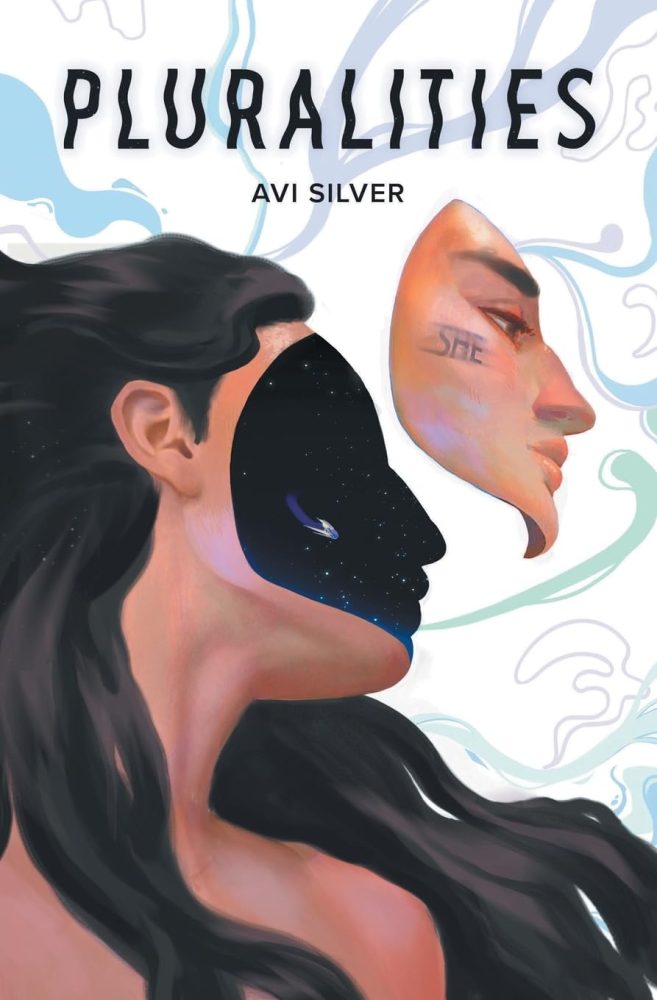
Pluralities is a dual-narrative novella that introduces us to a young shopping mall employee questioning their gender identity, and a renegade prince who has fled his home planet and his princely responsibilities. These narratives will converge in unexpected and surreal ways, but its the thematic overlap that makes this one of the most imaginative and best sci-fi books of recent years.
Our mall worker, who quits their job in the very first chapter, was assigned female at birth and raised by a loudly, proudly feminist mother. But they are questioning their womanhood and going through a crisis of identity. This crisis is supported and soothed by their new boyfriend, a trans man who has more lived experience in the area of gender rejection and gender wrangling.
Meanwhile, our spacefaring prince is planet-hopping, shirking his responsibilities, avoiding his destiny, and eager to live free and hedonistically. Keeping him company is the AI of his ship; a friend our prince has named Bo. Pluralities is a unique breath of fresh air for the sci-fi genre, written with both a playful wit and a grounded sense of maturity and consideration.
Buy a copy of Pluralities here!
All Systems Red by Martha Wells
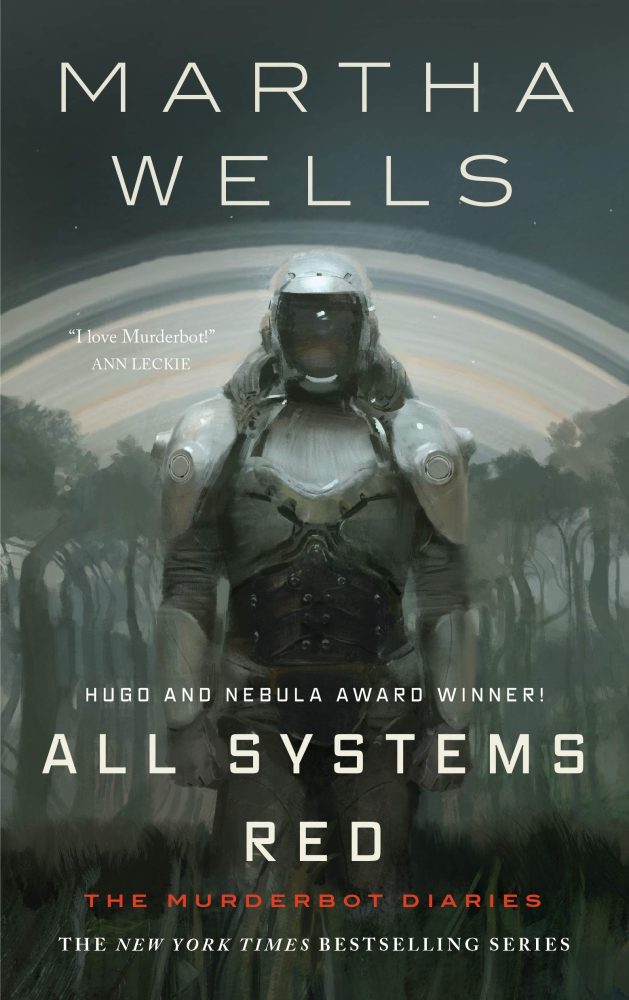
Winner of both the Hugo and the Nebula awards for best novella, All Systems Red is the first in Martha Wells’ Murderbot series of sci-fi thrillers. This is a fast-paced thrill ride of a novella which, in spite of its brevity, manages to touch on familiar themes of artificial intelligence, consciousness, and freedom in fresh and humorous ways.
Our protagonist, the titular Murderbot, is a SecUnit built from a mix of machine parts and lab-grown cloned bio-bits. It is designed to protect the humans it serves, but ours has hacked its own brain and has found full consciousness.
This is a far-flung future world where corporation and government are one and the same. Our Murderbot and its team are exploring a new territory when a nearby team goes dark, and our protagonists head over to investigate. This kickstarts the aforementioned thrill ride, with our Murderbot at the heart of the action.
What makes this sci-fi novella stand out from the pack is its protagonist; insular, sceptical, and all but curmudgeonly, they have little reason to trust and respect humans, and yet they must remain under the radar. This is for their own safety, and it leads to more than one fascinating encounter and conversation. A great little novella amongst the best sci-fi books of recent years.
Buy a copy of All Systems Red here!
The Luminous Dead by Caitlin Starling
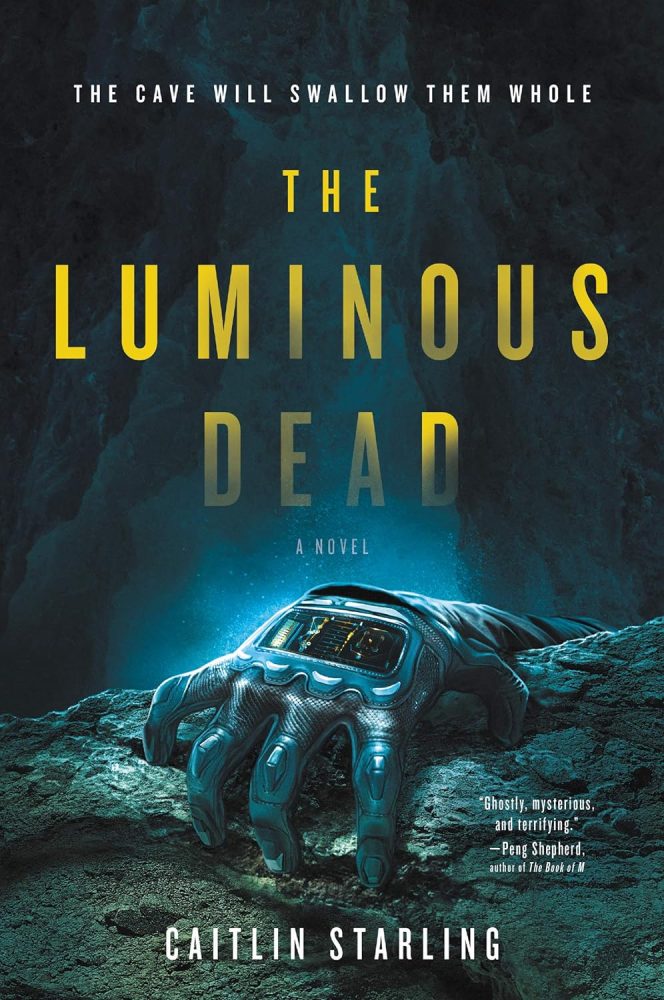
Set in a far future in which humanity is mining planets for valuable ore, The Luminous Dead blends science fiction and isolationist, claustrophobic horror in the vein of iconic movies like Alien, Event Horizon, and Sunshine. Protagonist Gyre is a young woman desperate to escape the colony on which she was raised, in order to find the mother who abandoned her.
In order to do this, Gyre takes on a desperately dangerous job as a caver, exploring the cavernous depths of the planet alone, with only the sole person on the radio for company. This person is Em, a frustrating woman who speaks in pinched sentences when she talks at all. There are things she knows; things that Gyre both needs and deserves to understand in order to be safe.
The Luminous Dead is a pressure cooker of a novel; tense and claustrophobic and fuelled by mystery and discovery. If you like your sci-fi with a healthy helping of terror and tension, this is your book.
Buy a copy of The Luminous Dead here!
Prophet by Helen Macdonald & Sin Blaché
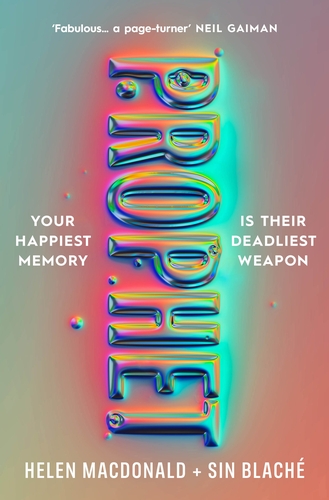
Co-created by sci-fi and horror writer Sin Blaché and Helen Macdonald, author of the award-winning H is for Hawk, Prophet is a wonderfully strange and compelling blend of science fiction and thriller fiction. The punch-happy, casually alcoholic, former MI6 agent Sunil Rao and the workaholic American military agent Adam Rubenstein (both queer) have been assigned a peculiar case to solve.
In a remote farmer’s field in Suffolk, an American diner has suddenly materialised. Stepping inside reveals that the place feels fake, like it was cobbled together by vague ideas of what a classic slice of Americana might look like. Nearby, a soldier from a local airbase seems to have built a bonfire and set himself alight on it. These things are connected.
Rao is chaotic and unpredictable, but he has the unique skill of being a human polygraph test, being able to tell truth from lie and real things from fake. Only he can untangle this strange web, while Adam keeps him upright. Between Rao and Adam’s chapters, we are presented with snippets of a life. A nameless boy is abused by his militant father and finds comfort in the support of his aunt. But what does this boy have to do with anything?
Twists and turns come hard and fast as everything gradually falls into place in one of the strangest blends of sci-fi and thriller you’re ever likely to read. Prophet is one of the most engaging, experimental, and best sci-fi books to have been published in recent years.
Frontier by Grace Curtis
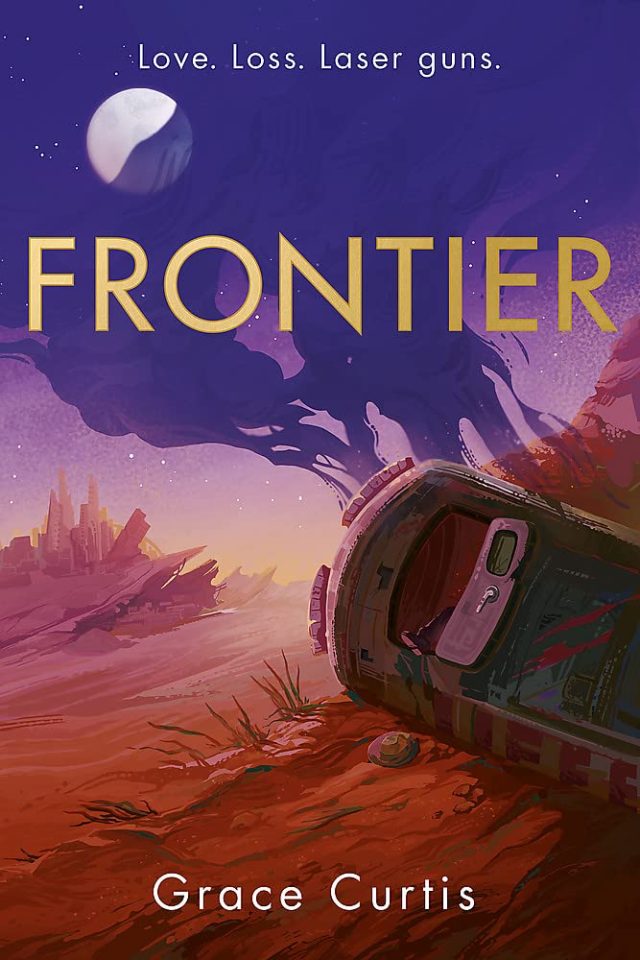
With her debut novel Frontier, Grace Curtis weaves various elements from popular sci-fi and western-influenced fiction into something wholly new. There are echoes here of the worlds of Mad Max and Stephen King’s Dark Tower, of the charming hopefulness of Becky Chambers stories, of John Ford’s 1939 classic movie Stagecoach, and much more. But Frontier manages to feel original and unique, in spite of all these similarities.
Like Star Wars before it Frontier is a sci-fi western set on an Earth of the future, devastated by climate change. While most of our species left for the stars, some remained in the form of a religious group who worship the planet itself. Our protagonist is a stranger who crashes to Earth and heads out in search of someone. A woman. That’s all we know at first.
Each chapter is an almost self-contained story that fleshes out the world as our stranger moved through it. She encounters people, places, ideas, and situations that bring a greater understanding of this future Earth. There is wit and humour to this story and a diversity of character. We learn more with each step and events of this story have an engaging, cinematic vibe. An exciting sci-fi western that’s bigger than the sum of its parts.
The Principle of Moments by Esmie Jikiemi-Pearson
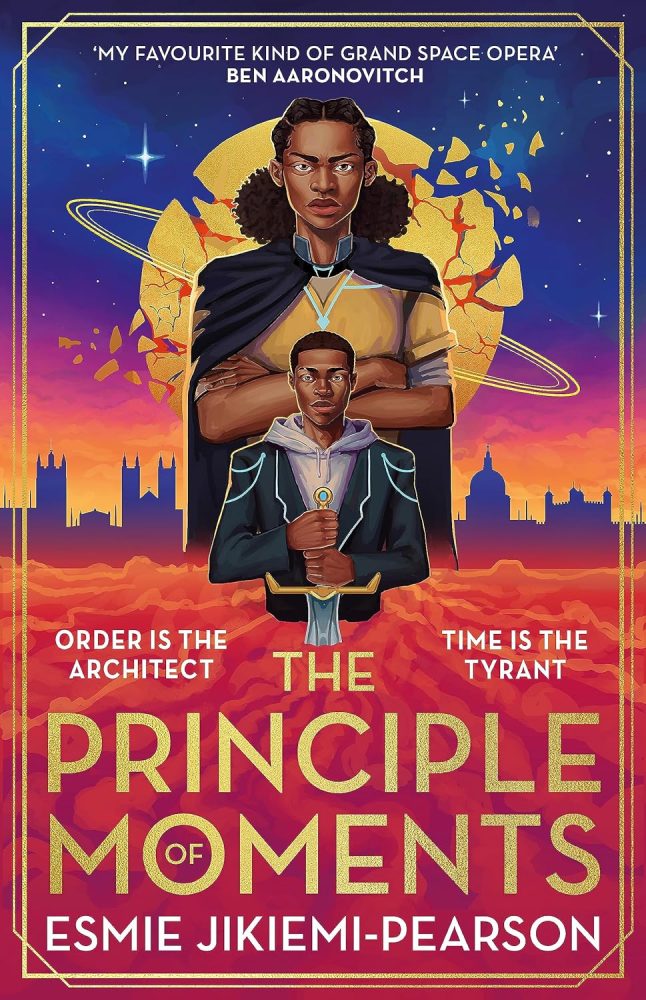
The Principle of Moments is a science-fantasy novel that injects a space opera setting with many of the themes and tropes firmly established by fantasy writers. Set between the years 6066 and 1812, our protagonists are Asha and Obi. She was born and raised on a desert planet which humanity escaped to, only to find that it is owned by a galactic emperor who enslaves our entire race.
Obi is a time-traveller who has contracted an illness from the act of time-travelling. He has decided to settle in 1812, and reunites with his lover, George, prince of England and grandson of Mad King George III. Obi’s story will eventually overlap with Asha’s as the two of them are thrown into a strange tale of prophecies foretold and heroes reborn.
What begins as a unique work of Black science fiction gradually morphs into something even more unique as the fantasy elements are layered into the world and characters. It’s a messy story that doesn’t seamlessly blend the elements of fantasy and sci-fi, but it certainly stands out as something wholly fresh and original.
Buy a copy of The Principle of Moments here!
Xenos (Eisenhorn) by Dan Abnett

Xenos is the first novel in an epic trilogy of novels (as well as several short stories) which centre around the character of Eisenhorn, an inquisitor of the Imperium of Man. These books are all part of the Warhammer 40,000 universe—a colossal world which began with a tabletop game and spun out into video games, books, and TV shows. And whether you care about the game or not (I don’t), the books are still very much worth your time!
Nothing proves this better than Xenos; a perfect jumping-on point for readers who are curious about this universe. Xenos gently drip-feeds readers information about the political and geographic structures of the 40K universe—as well as its systems of magic, mechanics, social dynamics, and more—while also telling an intriguing story that blends the genres of space opera and noir mystery in fun and engaging ways.
Eisenhorn is an inquisitor who has been chasing down an old enemy. He arrives as a desolate planet on which ten thousand of its elite are currently in hibernation. Eisenhorn fails to stop this enemy from killing every hibernating human, but his eventual capture and death quickly leads Eisenhorn on a path of conspiracy which reveals an enormous cult of heretics set on disrupting the Imperium of Man forever.

